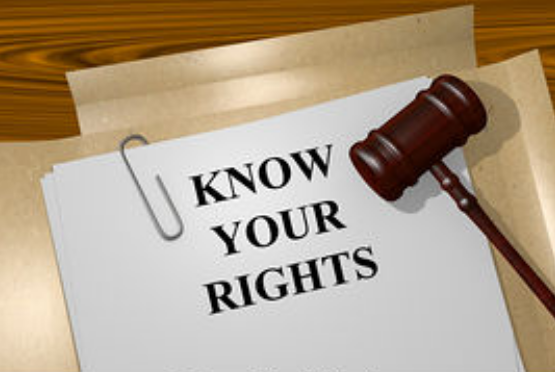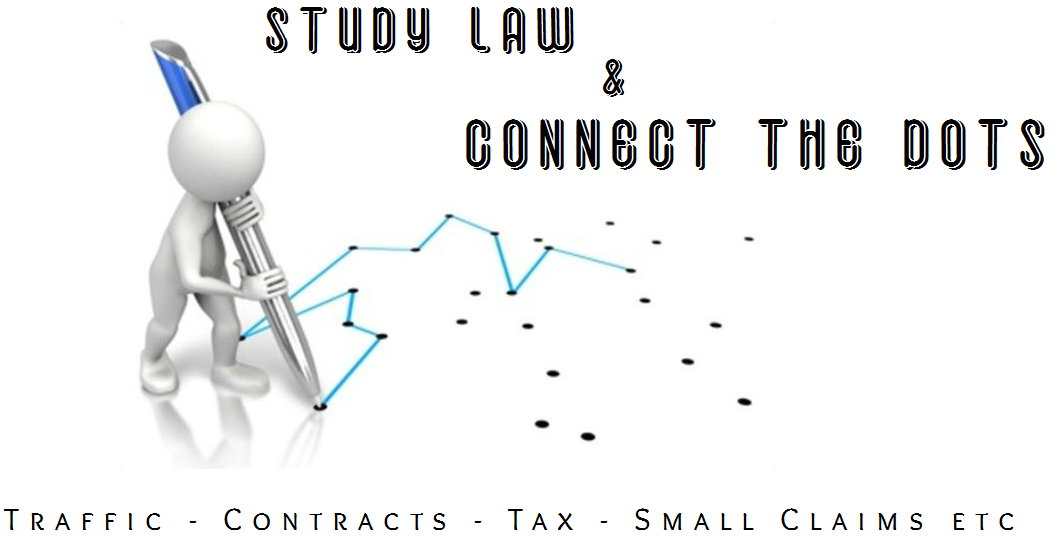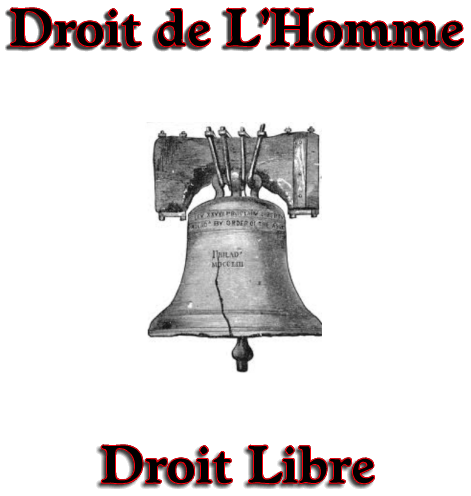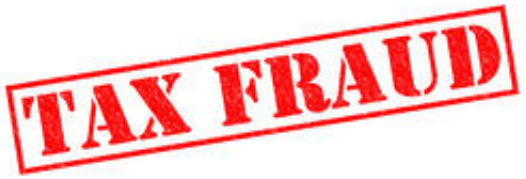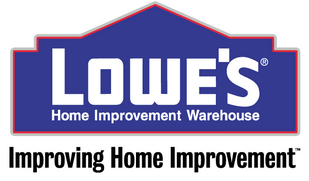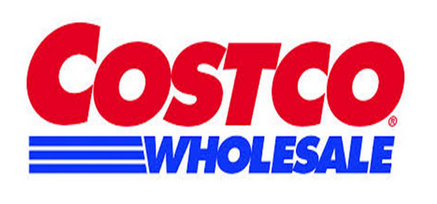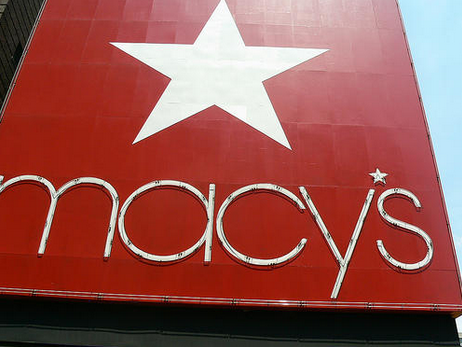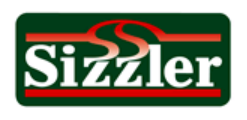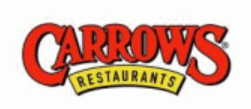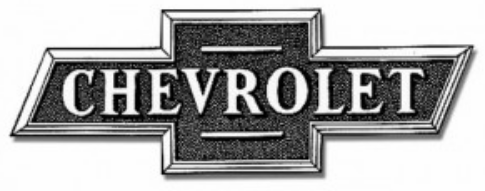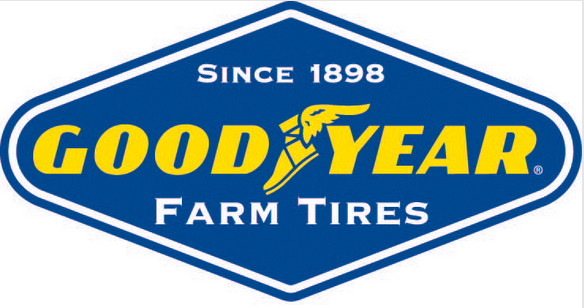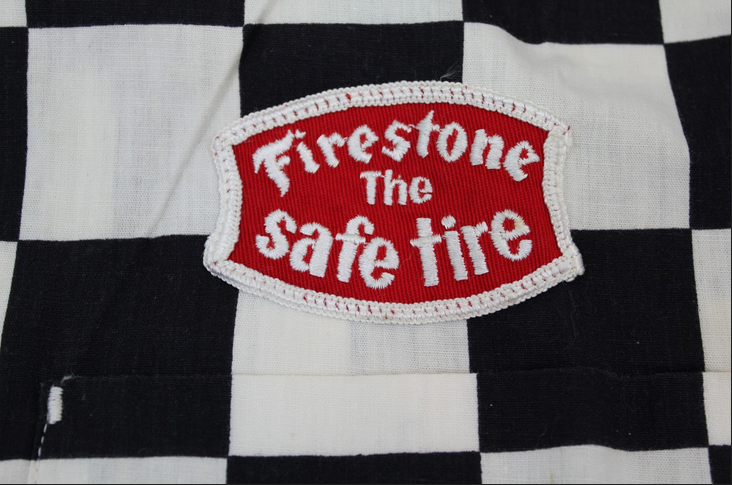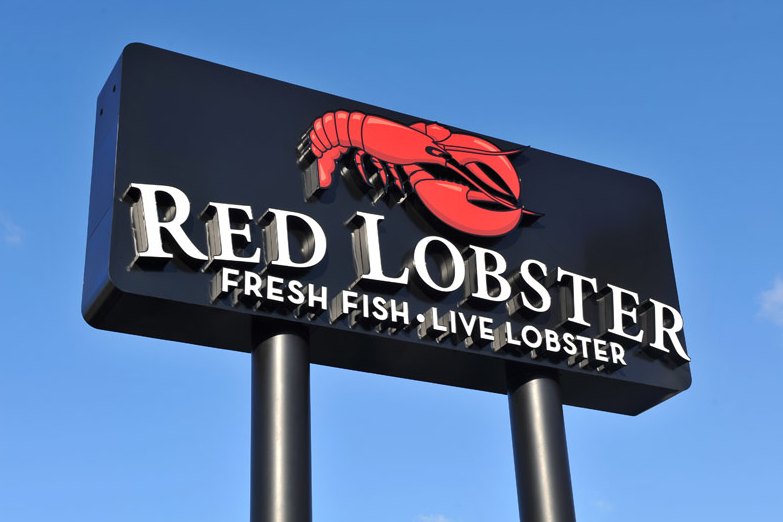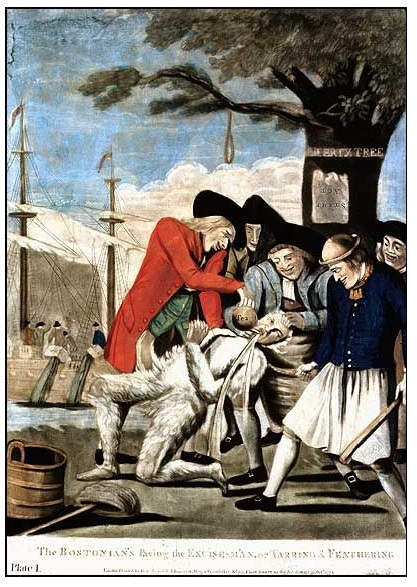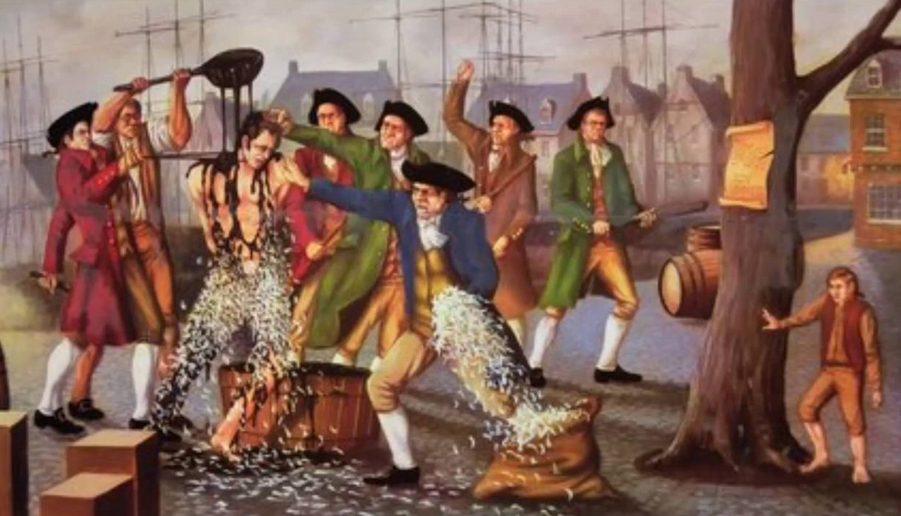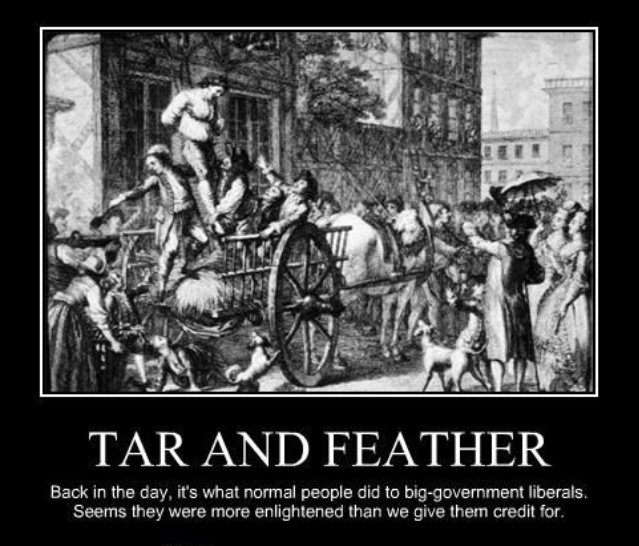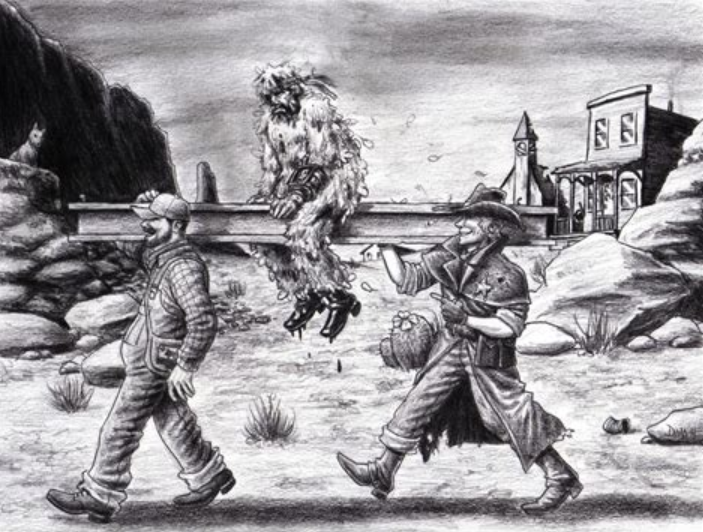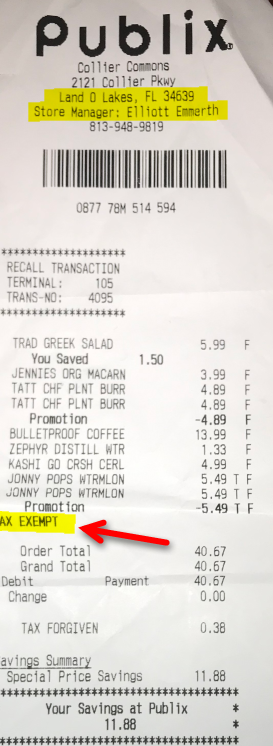That's TAX, spelled:
B - O - H - I - C - A
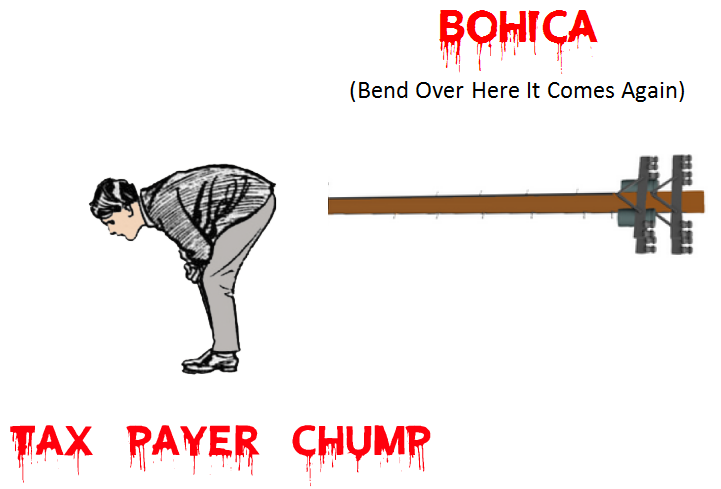
Let's begin with some history to add
solid context to the approach of this subject:
Matthew 17: 24
- And when they were come to Capernaum, they that received
tribute money came to Peter, and said, Doth not your master pay tribute?
Matthew
17: 25
- He saith, Yes. And when he was come into the house, Jesus
prevented him, saying, What thinkest thou, Simon, of whom do the kings
of the earth take custom or tribute? of their own children, or of
strangers?
Matthew
17: 26 - Peter saith unto him, of strangers, Jesus
saith unto him, Then are the children free.
 Right on!
Right on!
Are
you a stranger or one of the children?
Welcome Suckers, er, uh, potential
Customers. My apologies, I didn't mean to act like
a retailer.
After 30 years
of the study of law, I’ve determined
much of our
daily lives is based on fraud, misrepresentation and extortion, not to
mention hearsay, lots and lots of hearsay. I don't know about you
but I don't like being lied to or ripped off. That's
pretty much what this web site is devoted to, exposing lies and fraud.
And there's plenty to expose.
But one example should
suffice; sales tax.
If you didn't "have to" pay sales
tax, would you? If there was no
law requiring you to pay sales tax would you still pay it just because
the retailer says you have to or insists you have to if you want to
leave with the merchandise you hauled up to check out?
- YOU HAVE
TO PAY SALES TAX WHEN
YOU BUY SOMETHING OTHER
THAN FOOD! -
Everybody
believes they have to pay sales tax when they buy something other than
food at the grocery store. This belief is not supported by
fact. The
belief is false. There is NO LAW that requires the customer
to pay
sales tax. That may be hard to believe but it's true.
The customer
has to pay sales tax is the prevailing belief. People also have a
reasonable belief that the cashiers they
meet when making purchases are competent and know the rules related to
their job. Why would the thought cross the mind of the
customer that
the retailer would lie about the debt the retailer agreed to pay as a
condition
of getting their business license. Why would it cross the
customer’s mind
that the retailer would lie about the law?
Everyone who buys anything believes they are
required to pay sales
tax. However this belief is not based in fact.
The same everyones
who believe they “have to” pay sales tax have never seen the rules
regarding who “has to” pay it. If everyone did they
wouldn’t believe
what they currently believe.
The prevailing belief is predicated on fraud and
deception and the
unwary customer is subjected to extortion to ice the cake.


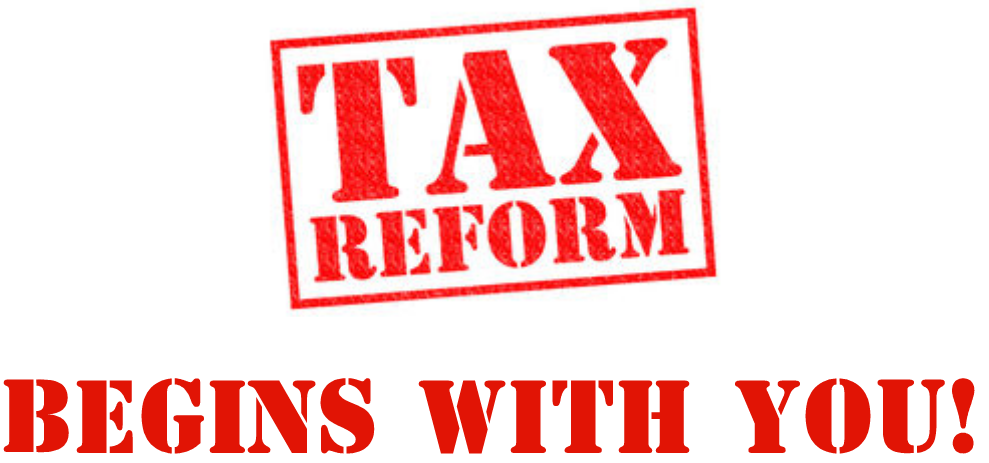
How did you become liable
(obligated) for
sales tax? How did you come to “have to” pay sales
tax? How would you feel if you learned that the
RETAILER and NOT THE CUSTOMER is required by law to pay sales tax?
If you believe you HAVE TO pay
sales tax then how did that “obligation” come into being?
If it’s the LAW then have you read the law? Have you seen
the law? Or have you “heard” that you “have to” pay sales
tax? Hearsay is less reliable than personal
knowledge.
Q:
Who’s got motive to lie about sales tax?
A:
Retailers.
Why? Because of the
way the LAW is written. The LAW imposes an obligation to
pay sales tax on the retailer, not the consumer. The
retailer is required BY LAW to pay sales tax. Unless the
consumer consents to pay the retailer’s tax obligation the retailer has
no authority to FORCE or COMPEL the consumer to pay their tax
obligation. In fact, in California the retailer is NOT
REQUIRED to collect sales tax.

A finding of willful fraud must be based on evidence that is clear and convincing and free from ambiguity.
Podlasky v. Price (1948) 87 Cal.App.2d 151
Owen v. McDonald (1950) 96 Cal.App.2d 65
Fortunately for everyone the laws
or rules having to do with sales tax are written so people can see them
and KNOW about tax instead of GUESSING about tax. In 2000
I found the rules that apply to sales tax and read them. Then I
went out into the retail world and I applied them correctly and this
resulted in my successful presentations of the LAW to the store mangers:
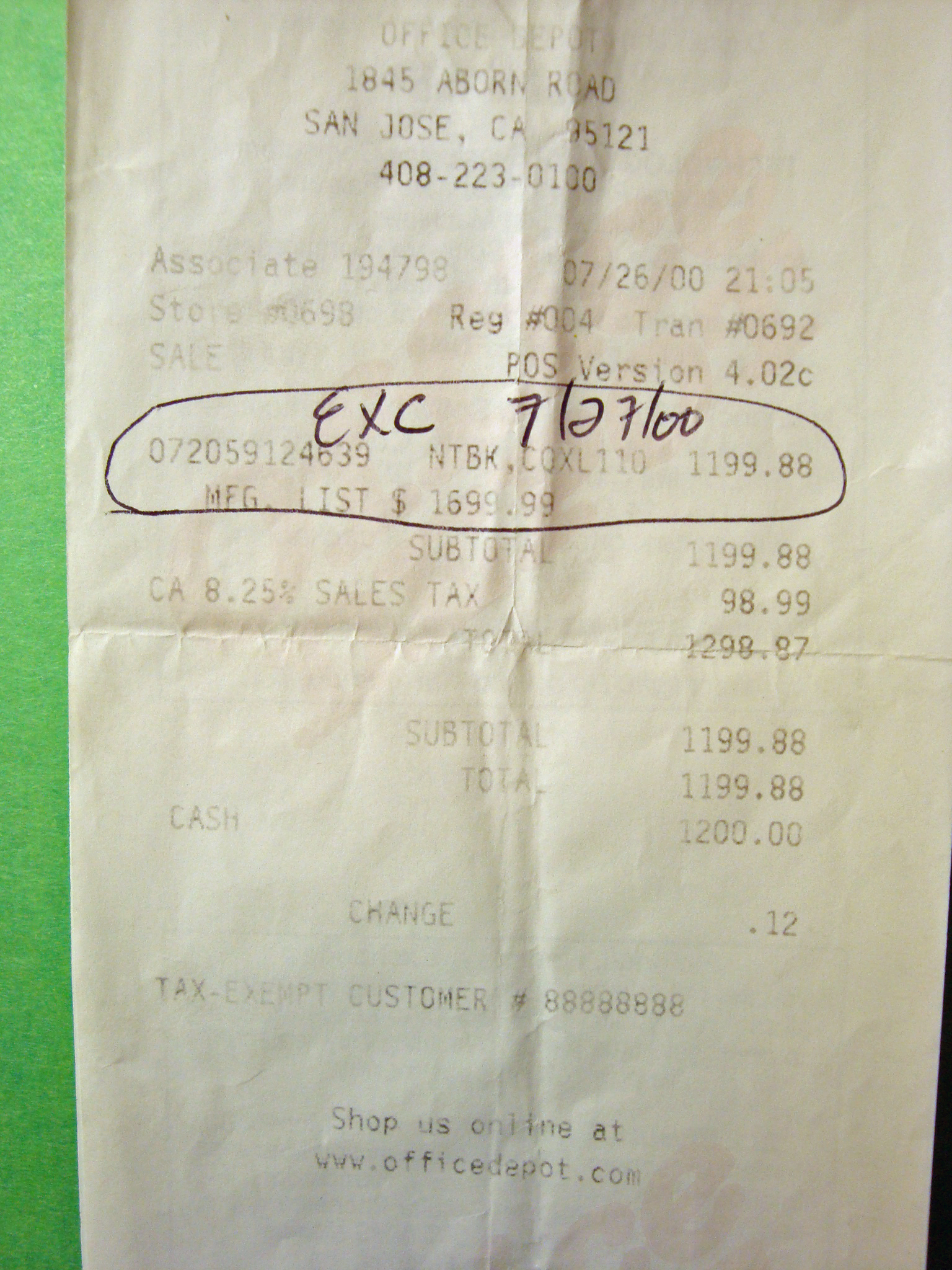 That's
correct. I purchased a lap top computer and DID NOT PAY any sales
tax and saved just under $100 by applying the law.
That's
correct. I purchased a lap top computer and DID NOT PAY any sales
tax and saved just under $100 by applying the law.
Consider for a moment you never
had one minute of contract law
nor were you taught ANYTHING about tax, except you "have to pay" it and
then your tax "education" was further reinforced by the ye olde adage:
"There's nuthin sure cept death and taxes.". Well
guess what?!
Half that equation isn't true. I've proven it to myself and you
can
prove it to your own satisfaction if you want. So again, if you
didn't "have to" pay sales tax, would you? Again, if so maybe
your
time would be better spent moseyin along and finding something of
greater value or benefit to invest your time cuz what you're gonna see
is the TRUTH about sales tax and to whom it applies. HINT:
If your
status when you walk into a place like Office Depot doesn't begin with
the letter R, then there's NO OBLIGATION imposed on you to pay the
tax.
Did you know, there's only TWO
types of tax? There's many names for them but only TWO
types: DIRECT
and INDIRECT. What follows is what you, and everyone else
were never taught about...

EXCISE.
An inland imposition, paid sometimes upon the consumption of the
commodity and frequently upon the retail sale.
1 Bl. Comm. 318; Story. Const. § 950.
The
words "tax" and "excise," although often used us synonymous, are to be
considered as having entirely distinct and separate significations,
under Const. Mass. c. I, § I, art, 4. The former is a
charge apportioned either among the whole people of the state or those,
residing within certain districts, municipalities, or sections.
It is required to be imposed, so that, if levied for the public
charges of government, it shall be shared according to the estate, real
and personal, which each person may possess; or, if raised to defray
the cost of some local improvement of a public nature, it shall he
borne by those who will receive some special and peculiar benefit or
advantage which an expenditure of money for a public object may cause
to those on whom the tax is assessed. An excise, on the other
hand, is of a different character'. It is "based on no rule
of apportionment or equality whatever. It is a fixed,
absolute, and direct charge laid on merchandise, products, or
commodities, without any regard to the amount of property belonging to
those on whom it may fall, or to any supposed relation between money
expended for a public object and a special benefit occasioned to those
by whom the charge is to be paid. 11 Allen, 268.
In
English law. The name given to the duties or taxes laid on
certain articles produced and consumed at home, among which spirits
have always been the most important; but, exclusive of these, the
duties on the licenses of auctioneers, brewers, etc., and on the
licenses to keep dogs, kill game, etc., are included in the excise
duties. Wharton.
Black’s Law Dictionary,
1st Ed, 1891, p. 452, 453
Labor has been held not to be a commodity. Rohlf v. Kasemeier,
140 Iowa 182, 118 N.W. 276, 23 L.R.A., N.S., 1285. But it
has been held that the supplying of telephone service is the supplying
of a commodity of commerce; McKinley Telephone Co.
v. Cumberland Telephone Co., 152 Wis. 359, 140 N.W. 38, 39.
There is neither a DIRECT nor INDIRECT
TAX on one’s labor because your
labor (the exertion of your energy), is not a COMMODITY. Res ipsa
loquitur, your labor can not be taxed due to the way the rules
of taxation have been written.
The law, in fact all six of them
(they’re actually code
sections that reflect the law: statute which is the law), that identify
who is REQUIRED
to pay sales tax, provides in all six sections WHO is required to
pay the tax and none of them
contain the term “customer” or “consumer”. The sales tax is
the
obligation of the retailer. They agreed to pay it as a
condition of
getting their license to sell merchandise at retail. In other words, if people wanted to know
if they “had to” pay
sales tax the rules are there for them to inspect 24 hours a day 7 days
a week if they have a computer and internet access because the rules
are posted on-line for all to see.
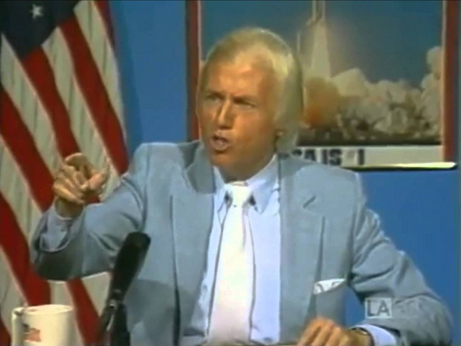 Unless you're a retailer, paying sales tax is ludicrous!
Unless you're a retailer, paying sales tax is ludicrous!
That's
because they agreed to pay it as a condition of getting their business
license.
A finding of willful fraud must be based on evidence that is clear and convincing and free from ambiguity.
Podlasky v. Price (1948) 87 Cal.App.2d 151
Owen v. McDonald (1950) 96 Cal.App.2d 65
Ever wonder where this idea of TAX came from?
Was it a discovery or an invention? Is it like a
plant or rock or somethin found in nature? In fact what in
nature represents whatever TAX means?
Ever wonder why you
"have to" pay sales tax? Would you pay it if you didn't
"have to"? Have you ever seen the rules (law) regarding SALES
TAX? If not then how do you know for a fact you're
required to pay it? Consider for a moment who has the most
to lose, me or the retailer? Why would I tell you you didn't
have
to pay sales tax? What do I get out of it? The
retailer doesn't want you to know because they'll lose customers if it
gets out they're cheating. I'll show you where to look for the
rules about sales tax, will the retailer's you give your hard earned
dollars to do that for you?
If you've never SEEN the rule
(law)
regarding SALES TAX then all you have to base your belief on is
HEARSAY. Presumptively whomever told you about SALES TAX read
the rule (law) about it. If they didn't then they told you
HEARSAY because they only HEARD you "have to" but have never verified
that in fact you, or they, actually do. Well, you don't know me
and you don't know the retailer or the cashier byy your going to give
the cashier you don't know the benefit of the doubt they're not lying
to you or cheating you. Are they getting your money ETHICALLY?
Are you an INFORMED CONSUMER who knows about the
fundamentals of a retail transaction like who is REQUIRED to pay the
tax you believe you "have to pay". So which one of us has
the most to lose by me informing you you're NOT REQUIRED to pay sales
tax? I'm not demanding or asking you for money, they are,
and they won't let you have what you used your time and fuel to go get.
How much
would you save every month if you didn't "have to" pay sales tax?
And yearly? Permit
me to help with a quick analysis. You more than likely did
business with one or more of these retailers in the past year:
WHY BUCK TRADITION? JUST PAY IT!
A finding of willful fraud must be based on evidence that is clear and convincing and free from ambiguity.
Podlasky v. Price (1948) 87 Cal.App.2d 151
Owen v. McDonald (1950) 96 Cal.App.2d 65






Every single one of them ripped
you off, INCLUDING GAS STATIONS! GAS STATIONS ARE RETAILERS!
Even though they're different
retailers they all have the same thing in common, they SELL stuff.
Remember, we're referring to a SALES tax, it's a tax on GETTING
RID OF STUFF, not ACQUIRING STUFF. It's a tax on the exercise of
the PRIVILEGE of getting rid of stuff.
All the ones who
advertise they pay the sales tax are acting like they care about you
and what's in your wallet. They're ACTING AS IF they're doing
you a
big fat favor by paying the SALES TAX. THEY'RE REQUIRED TO
PAY THE SALES TAX so all they're "advertising" is a REQUIREMENT IMPOSED
ON THEM BY LAW WHILE MISLEADING YOU AND YOUR FAMILY AND FRIENDS IN THE PROCESS.
Do you have a reasonable
expectation the cashier's are competent and know their job and the law that applies to their job?
Do you have a
reasonable expectation they'll comply with the law? Do you
have a reasonable expectation they won't mislead you? If the
cashiers don't know what you're
about to find out then what are they doing working the register?
What are they doing handling money? And IF they do
know are they just waiting for you to simply speak up and tell em
you're not required to pay? Is it their job to tell you how to
spend your money or what the rules are? Is that what Wal-Mart
and TARGET have evolved into, business schools?
Here's the
deal with every single retailer referred to above:
YOU DID NOT OWE
THEM ONE PENNY IN
SALES TAX! YOU GAVE THEM WHAT YOU WERE UNDER NO
OBLIGATION TO
GIVE AND THEY COULD NOT FORCE YOU TO PAY IT! THEY'RE NOT
EVEN ENTITLED TO IT!
AND THEY CAN NOT PROVE YOU HAVE TO PAY IT!
Sales
tax is laid solely on retailer and not on consumer, tax relationship is
between retailer only and state,
and is direct obligation of retailer.
Livingston Rock &
Gravel Co. v De Salvo (1955, 2nd Dist) 136 Cal App 2d 156
And if that's not plain or
contemporary
enough here's a cite from a California Supreme Court case from 2014:
Plaintiffs
are consumers who contend that defendant retailer represented that it
properly was charging and in fact charged them sales tax reimbursement
on sales of hot coffee sold "to go," when, according to plaintiffs, the
tax code rendered such sales exempt from sales tax. They
brought an action against defendant retailer under two consumer
protection statutes, seeking a refund of the assertedly unlawful
charges, damages, and an injunction forbidding collection of sales tax
reimbursement for such sales. The trial court sustained
defendant's demurrer without leave to amend, and the Court of Appeal
affirmed, concluding that plaintiffs' action was not authorized under
the tax code and was barred by article XIII, section 32 of the
California Constitution. That provision limits the manner
in which taxpayers may seek a refund of taxes from the taxing entity.
We
affirm the judgment of the Court of Appeal, although our analysis
differs somewhat from that court's analysis. We conclude
that the tax code provides the exclusive means by which plaintiffs'
dispute over the taxability of a retail sale may be resolved and that
their current lawsuit is inconsistent with tax code
procedures. As explained, the consumer protection statutes
under which plaintiffs brought their action cannot be employed to avoid
the limitations and procedures set out by the Revenue and Taxation Code.
The
tax code provides that the retailer is the taxpayer and that it is the
retailer which is required to pay sales tax to the state; the
retailer is permitted but not required to collect a matching "sales tax
reimbursement" from consumers.
Loeffler v. Target Corp.
(2014), 58 Cal.4th 1081,
Download the California Court of Appeals and California Supreme Court decision in the Loeffler
matter and read them for yourself. The women who filed this
case LOST before they even left their homes to go file it. THE
DID NOT READ THE RULES! They wasted a lot of paper and ink not to
mention all their time. And consider that every time they
LOST and appealed, "We the people..." HAD TO PAY TO DEFEND AGAINST
THESE IDIOTS! They filed a LOSING CASE and "We the people..." had
to pay all the court employees involved. All over a few
cents for a couple cups of coffee.
This legal
maxim is the reason Loeffler's case was doomed from launch:
Volunti
Non Fit Injuria
He who consents cannot receive
an injury.
2 Bouv. Inst. n.
2279, 2327; 4 T. R. 657; Shelf. on mar. & Div. 449
These people deserve The A+ For
Effort trophy. That's the ONLY redeeming aspect of what they
did. That was one Herculean effort in waste of time and they
couldn't have succeeded more gracefully. They permitted
both the Court of Appeals and the Supreme Court of California to
adeptly
inform the People just exactly what one would need or want to know
about that daily occurance: SALES TAX. By telling us what
the sales tax is all about it provides us with the opportunity to find
out who acts according to the law and who doesn't. It
provides us with an opportunity to know who's telling the truth and
who's lying or misleading. Those cheats up there should
know better. And who's lower than a food seller? They're
taking advantage of most
fundamental human requirements. Why should we be tolerant of
their intolerance demonstrated toward their customers? Why
should we excuse them misleading us while it puts ill-gotten gains in
their pockets? Is it really a good business practice to
reward ignorance or bad behavior? Where's the remorse for
misleading the customer, the very people who make it possible for the
merchant and their staff to live somewhere and buy food and go on
holiday? Everything else these morons in the theeLoeffler
case did was LOSE from the gate. This thing was a complete
waste of tax dollars and the pin heads who conducted this time and
money wasting charade ought to be imprisoned for their criminal
tardness. There has NEVER been any disagreement in ANY
court case since the first one regarding the WHO in the equation of
"having to" pay sales tax. From the first to this last
successful outing of snatching defeat from a two day old child, it's
been the PRIVILEGE HOLDER; the RETAILER.
My God what an abject waste, with
a couple exceptions that are actually pretty good. People NOW
have TWO cases on the same topic that affects them EVERY TIME they make
a purchase, and that informs them with plain unambiguous language and
absolutely stunningly accurate previous court citations on the same
topic so they can be better prepared when heading out to the Retail
Forrest to bag some game, or get some game bagged if you prefer.
The appellate and Cal Sup Ct ruling are very valuable and beneficial
from the stand-point of bona fide, credible, pretty much squeaky clean
mind sets on the issue. Bottom line, the rulings are really good
and well worth studying until the information becomes a part of
your Retail Financial Transaction Mode-O-Operandi.
Anyway, I
think the idea is: Why reward a cheat?!
They rip you off because you
don't know the rules. They rip you off because they can.
Call em on it and see what happens. Show em the rules and see if
they're honest or not. See if they'll treat you like you're
outta your mind. They also "double dip". In addition to
them expecting you to pay their sales tax, they also get the PROFIT
MARGIN between what they actually pay for the items and what they're
offered for. The MSRP, is merely a "SUGGESTED", price.
The manufacturer is just tryin to be helpful to the retailers by
providing a guestimate of what uninformed customers might be willing to
pay. So profit margin and sales tax, is there anything else?
Yup! You know those convenience card swipe machines
with the buttons no one seems to know how to properly push nor the
sequence to use to "pay" for the shit they want? Those things
are RENTED by the retailer. Guess who picks up the tab for the
convenience of the card swipers? The cash users and everyone
else.
When
did merchants become special and not have to pay their way like
everyone else? How come they get to pass on their rent to
the customer but the customer can't demand the retailer pay some of
theirs?








Anyone got a bug?

NOT CAL WORTHINGTON TOO?!?!?!?!

Man
I'm sure that's worth every penny of the amount the sucker, er,
customer pays in sales tax. One
should pay a little extra
for a status symbol.
 "Everybody
knows" the customer "has to" pay sales tax. Just kidding.
But it sure adds up doesn't it?!
"Everybody
knows" the customer "has to" pay sales tax. Just kidding.
But it sure adds up doesn't it?!
What
evidence would you need to see before you believed that you, as the
customer, are NOT required to pay Sales Tax? The law maybe?:


The word "customer" is NOWHERE to be
found in that
section or the other 5 sections that contain the same exact words you
see there. Notice that it's a
"privilege" to sell tangible personal property at retail.
The privilege is commercial in nature. Everybody
knows that "driving is a privilege", and that they have to have a
license to drive. The similarity between the two seemingly
dissimilar activities is that they're both "commercial privileges", or
one might say the license issued to both the retailer and driver
permits valid engagement in commercial transactions related to their
respective business, one selling the other delivering.
The TYPE
of tax on the retailer is no different than the tax imposed on someone
with a driver license. Like selling tangible personal
property at retail, driving is a business, or job, or occupation, and
the driver an employee. So again, what evidence would you need
to see in
order to be convinced that you, as customer, are NOT REQUIRED to pay
sales tax unless you agree to do so?
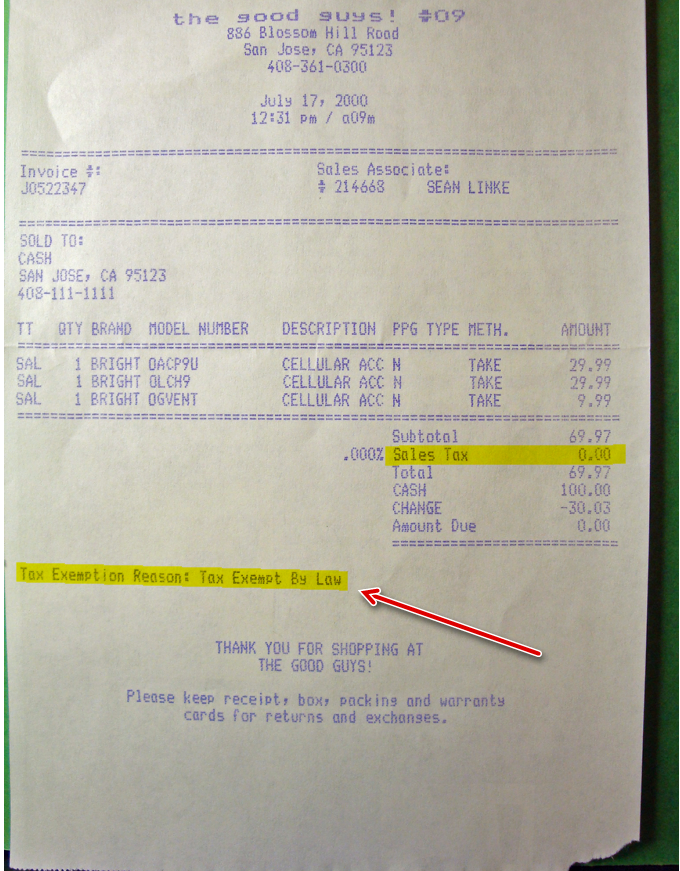
So consider this scenario in
relation to the SALES
TAX you believe you're required to pay even though you've never seen
the rules. Let’s say I move into the apartment next to you or
the house next to yours. Let’s say rent or mortgage payment
day rolls around and you get a knock at your front door.
You check it out and it’s me. Then you hear this:
Hi, I need you to cut
me a check in the amount of $2800.
What might
your reaction be?
You what?!
I need you to cut me a check in the
amount of $2800.
I don’t understand.
Well I have to pay rent today so I need a
check for $2800.
You signed a rental agreement right?
Yeah.
Well what are you doing here?
Like I said I need you to cut me a check
in the amount of $2800 so I can pay rent.
You do realize that you agreed to pay
rent as a condition of getting the apartment right?!
Yeah.
Then paying the rent is your
responsibility.
I know, but you’re gonna pay it.
Gonna cut me a check?
Didn't think so, so why
do you cut the retailer a check, it's the same thing. They
agreed to pay the SALES TAX as a condition of qualifying for the
license, then when they sell an item and are required to pay the tax on
it, they trick you into paying what they agreed to pay. Me
stopping by asking for a check for my rent payment will result in a
door being slammed in my face for being a dumb ass, however the
retailer will be rewarded for their deception. In fact, it's my
experience those retail professionals don't even know any of this.
So if you don't have to then why do you let those people who
need you to buy the shit on their shelves or they're gonna starve and
not be able to make any payments for anything deceive you into
believing something that's patently false? I don't think it's
good business to reward fraud and extortion.
Paying
$ale$
TAX
Is
Like

Yeah, I suppose ya can, but
why would you when your nose works perfectly well without the nail in it?

A finding of willful fraud must be based on evidence that is clear and convincing and free from ambiguity.
Podlasky v. Price (1948) 87 Cal.App.2d 151
Owen v. McDonald (1950) 96 Cal.App.2d 65

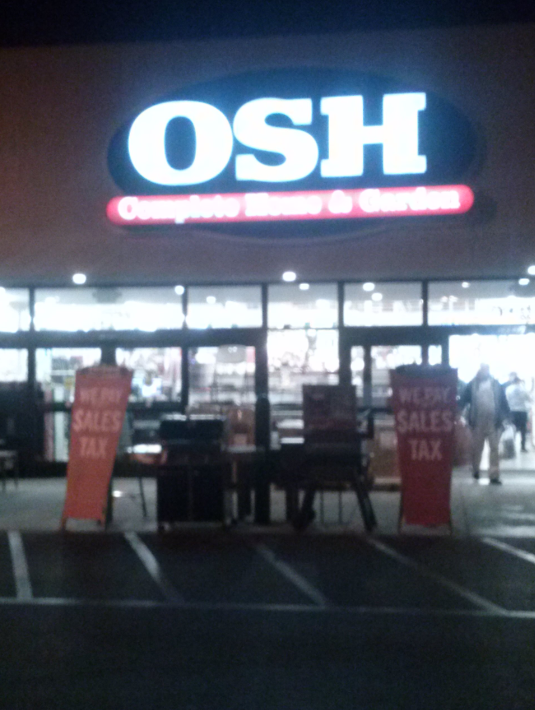
WHY ARE THEY ACTING "AS IF" THEY'RE DOING THEIR
PATRONS/CUSTOMERS/CONSUMERS A FAVOR?
WHY ARE THEY MAKING A
BIG DEAL OUT OF DOING WHAT THEY AGREED TO DO?
We clean the floors
We clean the restrooms
We pay our employees
The store manager opens the store in the morning
We lock the door when we close
The store manager uses a key to unlock the door in the
morning
We sell merchandise
Without electricity we can't run our business efficiently
We agreed to pay sales tax as a condition of qualifying
for the business license
WHY ARE THEY
REPRESENTING BY IMPLICATION THE PATRON/CUSTOMER/CONSUMER IS "OBLIGATED"
TO PAY SALES TAX?
 They're misleading for MONEY.
They're misleading for MONEY.
They want to SPEND LESS of it on CUSTOMERS.
They save money, and now make money, by selling bags.
They reduced the "cost of doing business" by not buying bags to give
away to their customers.
The MOTIVE is MONEY.
How they get it is by DECEPTION.
Decptive business practices are not only unlawful but are
also unethical.
BOTTOM LINE: The
retailer is REQUIRED BY LAW to pay sales tax. The customer IS
NOT
REQUIRED to pay sales tax. There is NO LAW requiring the
customer to
pay sales tax. I've have unassailable evidence the CUSTOMER
IS NOT
REQUIRED TO PAY SALES TAX.
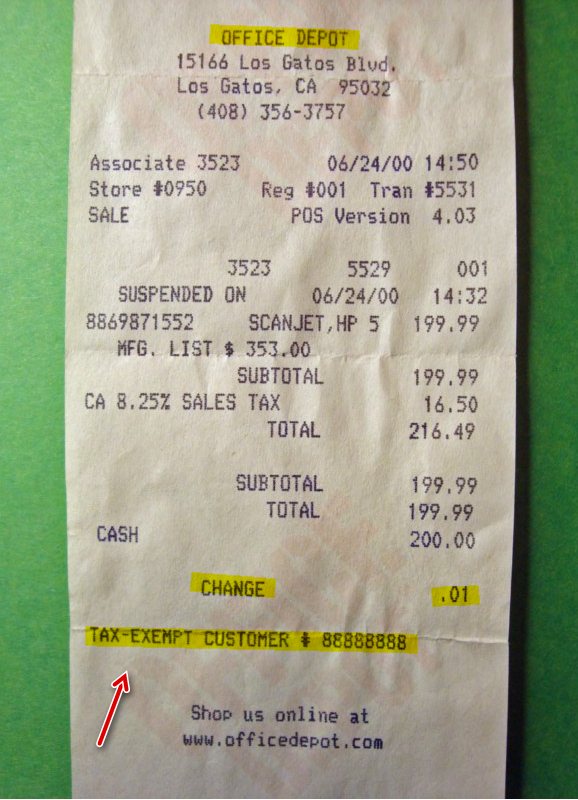
I
made the law work. I didn't "practice" anything, I applied the
law
properly and the right someone did nothing more than comply with the
law.
THE
$ALE$ TAX FRAUD
fraud
: the crime of using dishonest methods to
take something valuable from another person
: a person who pretends to be what he or
she is not in order to trick people
: a copy of something that is meant to look like the real thing in
order to trick people
Full Definition of fraud
1 a: deceit, trickery;
specifically: intentional perversion of
truth in order to induce another to part with something of value or to
surrender a legal right
b: an act of deceiving or misrepresenting: trick
2 a: a person who is not what he or she
pretends to be: impostor;
also: one who defrauds: cheat b: one that is
not what it seems or
is represented to be
n.
the intentional use of deceit, a trick or some dishonest means to
deprive another of his/her/its money, property or a legal right.
A
party who has lost something due to fraud is entitled to file a lawsuit
for damages against the party acting fraudulently, and the damages may
include punitive damages as a punishment or public example due to the
malicious nature of the fraud. Quite often there are several
persons
involved in a scheme to commit fraud and each and all may be liable for
the total damages. Inherent in fraud is an unjust advantage over
another which injures that person or entity. It includes failing
to
point out a known mistake in a contract or other writing (such as a
deed), or not revealing a fact which he/she has a duty to communicate,
such as a survey which shows there are only 10 acres of land being
purchased and not 20 as originally understood. Constructive
fraud can
be proved by a showing of breach of legal duty (like using the trust
funds held for another in an investment in one's own business) without
direct proof of fraud or fraudulent intent. Extrinsic fraud
occurs
when deceit is employed to keep someone from exercising a right, such
as a fair trial, by hiding evidence or misleading the opposing party in
a lawsuit. Since fraud is intended to employ dishonesty to
deprive
another of money, property or a right, it can also be a crime for which
the fraudulent person(s) can be charged, tried and convicted.
Borderline overreaching or taking advantage of another's naiveté
involving smaller amounts is often overlooked by law enforcement, which
suggests the victim seek a "civil remedy" (i.e., sue). However,
increasingly fraud, which has victimized a large segment of the public
(even in individually small amounts), has become the target of consumer
fraud divisions in the offices of district attorneys and attorneys
general.
See also: constructive fraud
exemplary damages extrinsic fraud fraud in the
inducement fraudulent
conveyance intrinsic fraud
An assertion or
manifestation by words or conduct that is not in accord with the facts.
Misrepresentation
is a tort, or a civil wrong. This means that a misrepresentation can
create civil liability if it results in a pecuniary loss. For example,
assume that a real estate speculator owns swampland but advertises it
as valuable commercially zoned land. This is a misrepresentation. If
someone buys the land relying on the speculator's statement that it is
commercially valuable, the buyer may sue the speculator for monetary
losses resulting from the purchase.
To
create liability for the maker of the statement, a misrepresentation
must be relied on by the listener or reader. Also, the speaker must
know that the listener is relying on the factual correctness of the
statement. Finally, the listener's reliance on the statement must have
been reasonable and justified, and the misrepresentation must have
resulted in a pecuniary loss to the listener.
A
misrepresentation need not be intentionally false to create liability.
A statement made with conscious ignorance or a reckless disregard for
the truth can create liability. Nondisclosure of material or important
facts by a fiduciary or an expert, such as a doctor, lawyer, or
accountant, can result in liability. If the speaker is engaged in the
business of selling products, any statement, no matter how innocent,
may create liability if the statement concerns the character or quality
of a product and the statement is not true. In such a case, the
statement must be one of fact. This does not include so-called puffing,
or the glowing opinions of a seller in the course of a sales pitch
(such statements as "you'll love this car," or "it's a great deal").
A
misrepresentation in a contract can give a party the right to rescind
the contract. A Rescission of a contract returns the parties to the
positions they held before the contract was made. A party can rescind a
contract for misrepresentation only if the statement was material, or
critical, to the agreement.
A
misrepresentation on the part of the insured in an insurance policy can
give the insurer the right to cancel the policy or refuse a claim. An
insurer may do this only if the misrepresentation was material to the
risk insured against and would have influenced the insurer in
determining whether to issue a policy. For example, if a person seeking
auto insurance states that she has no major chronic illnesses, the
insurer's subsequent discovery that the applicant had an incurable
disease at the time she completed the insurance form probably will not
give the insurer the right to cancel the auto policy. However, if the
person was seeking Health Insurance, such a misrepresentation may
justify cancellation of the policy or a denial of coverage. Generally,
cancellation or denial of insurance coverage for a misrepresentation
can occur only if the insurance applicant was aware of the inaccuracy
of the statement.
Further readings
Kionka, Edward J. 1988. Torts. St. Paul, Minn.: West.
Cross-references
Consumer Protection; Product Liability; Sales Law; Tort Law.
West's Encyclopedia of American Law, edition 2. Copyright
2008 The Gale Group, Inc. All rights reserved.
http://legal-dictionary.thefreedictionary.com/Misrepresentation
misrepresentation
Fraudulent,
negligent, or innocent misstatement, or an incomplete statement, of a
material fact. If a specific misrepresentation induces the other party
to enter into a contract, that party may have the legal right to
rescind the contract or seek compensation for damages. The guilty party
avail of the defense that the wronged party could have checked the
facts and have discovered what was wrong. A misstatement of an
intention or opinion is generally not considered a misrepresentation.
Misrepresentation
in general is a legal term that means "a false statement of fact that
has the effect of inducing someone into a contract." For example,
telling someone a stereo is "practically new" so that they buy it, when
it is in fact 5 years old and heavily used.
Negligent
misrepresentation is one of the three recognized varieties of
misrepresentations in contract law (along with innocent and fraudulent
misrepresentation). Basically, it means that you did not directly lie
(say something you KNOW to be false), but you made a representation
about something while having no reasonable reasons for believing it to
be true, such as when Sygenta claimed that its GMO corn could be sold
in all major markets for American-grown corn.
Example:
A real estate broker tries to sell a house to a buyer, who stresses his
need for peace and quiet. The broker promises that the house is very
quiet. In reality, the house next door is undergoing a very noisy
reconstruction. Although the broker did not know this, her promise that
the house was quiet was made without her having any reason to believe
that that was the case. She simply assumed it. This would be a
negligent misrepresentation (had she known about the construction and
lied about it, however, that would be a much more serious fraudulent
misrepresentation).
What Constitutes Negligent
Misrepresentation?
The essential elements of a
claim of negligent misrepresentation are:
Someone made a false representation as to a past or
existing fact.
Statements about the future do not count, nor do opinions or typical
"car-salesman" type phrases ("This is a great car," "This is a real
deal," and the like).
The person
making the belief must have no reasonable ground for believing it to be
true. So in the real estate broker example, if the broker had lived in
the house for 10 years, and always found it to be quiet in the past,
then her misrepresentation would not have been negligent (in that case
it would have been an innocent misrepresentation).
The representation must have been made with the
intent to induce
the other party to rely upon it. Basically, you had to be using your
misrepresentation in order to help you make the deal.
The other party must have believed the
misrepresentation and
reasonably relied on it. Most courts are hesitant to protect a buyer if
he is unreasonable in relying on whatever the seller told him (for
example, in trying to sell him a car, the seller assured him it could
go "a million miles an hour," and the buyer believes this). The buyer
must also rely partly (or in many courts, wholly), on the
misrepresentation in deciding to go ahead with the transaction.
As a result of the reliance on the
misrepresentation, the other
party suffered damages. This means the buyer must be actually harmed by
the final transaction, otherwise there is no liability.
There
is an important distinction to be made here, however. The more serious
variety of misrepresentation (fraudulent misrepresentation, or fraud),
has nearly identical elements, so the line between the two is very
fine. The only difference is that fraudulent misrepresentation requires
“reckless disregard” as to the truth of something”, while negligent
disregard only requires “no reasonable ground” to assume something is
true. It is essentially a matter of degree.
So
in the real estate broker example, for instance, it was not a reckless
disregard for the truth to say the house was quiet, since many homes
may be considered so, even if it was negligent of her as a broker to
discover this fact before making any claims.
But
if the buyer had said “I am deathly allergic to common pine wood, is
there any pine wood in this house?” and she had responded “no, not at
all” when in fact she has no idea what kind of wood the house is made
of, then this would be a reckless disregard for the truth of something,
especially considering the possibly consequences.
Remedies for Negligent Misrepresentation
Misrepresentations
are civil offenses, meaning you can only sue for them in civil court
(the criminal equivalent of these offenses is called "false
pretenses"). The general remedy in civil court for all types of
misrepresentations is that of rescission. This means the court will act
like the transaction or contract never existed, and everyone goes back
to the way they were.
Example: You sell
someone a stereo for $50 telling them that it is fully functional
(which you think is true), and it turns out to be broken. The deal is
rescinded; the buyer returns the stereo, and you return the money.
However,
negligent misrepresentation is aptly named, as it requires negligence
(which is by itself a separate civil offense) on the part of the
perpetrator. It is therefore considered a more serious offense than
mere innocent misrepresentation, and can have its own separate set of
remedies under the tort of negligence. See that article for more
details.
A
false statement of fact made by one party which affects the other
party's decision in agreeing to a contract. If the misrepresentation is
discovered, the contract can be later declared void and the situation
remedied if the party who relied on the misrepresented fact files suit.
For this reason, it is important to be accurate when disclosing facts
relevant to a contract negotiation.
Misrepresentation
generally applies only to statements of fact, not to opinions or
predictions. In some situations, such as where a fiduciary relationship
is involved, misrepresentation can occur by omission. That is,
misrepresentation may occur where a fiduciary fails to disclose
material facts of which he or she has knowledge. A duty also exists to
correct any statements of fact which later become known to be untrue.
In this case, failure to correct a previous false statement would be
misrepresentation.
THE
LAW OF TORTS
by
William L. Prosser
Professor of Law
Hastings College of the Law
FOURTH EDITION
HORNBOOK SERIES
WEST PUBLISHING CO.
1971
p. 143
NEGLIGENCE
§30. ELEMENTS OF CAUSE OF
ACTION
Negligence,
as we shall see, is simply one kind of conduct. But a cause
of action
founded upon negligence, from which liability will follow, requires
more than conduct. The traditional formula for the elements
necessary
to such a cause of action may be stated briefly as follows:
1. A duty or obligation,
recognized by the law, requiring the
actor to conform to a certain standard of conduct, for the protection
of others against unreasonable risk.
2. A failure on his part to
conform to the standard required.
These two elements go to make up what the courts usually have called
negligence; but the term quite frequently is applied to the second
alone. Thus it may be said that the defendant was
negligent, but is
not liable because he was under no duty to the plaintiff not to be.
3. A reasonable close casual
connection between the conduct and
the resulting injury. This is what is commonly known as
“legal cause”
or “proximate cause”.
4.
The
actual loss or damage resulting to the interests of
another. Since
the action for negligence developed chiefly out of the old form of
action on the case, it retained the rule of that action, that proof of
damage was an essential part of the plaintiff’s case.
Nominal
damages, to vindicate a technical right, cannot be recovered in a
negligence action, where no actual loss has occurred. The
threat of
future harm, not yet realized, is not enough. Negligent
conduct in
itself is not such an interference with the interests of the world at
large that there is any right to complain of it, or to be free from it,
except in the case of some individual whose interests have
suffered.
Such a statement must, however, be qualified to the extent that, as in
the case of other torts, where irreparable injury is threatened, a
court of equity may act by injunction to prevent the harm before it
occurs. Even here the damage, even though only potential,
is the
basis for granting relief.
Chapter 18
REMEDIES FOR MISREPRESENTATION
§105, p. 691
Estoppel
Still another form in which misrepresentation may
play an important part in the law of torts is that of
estoppel. An estoppel is a rule which precludes a party
from taking a particular legal position because of some impediment or
bar recognized by the law.82 It was applied originally to
prevent a party from challenging the validity of a legal record, or his
own deed; but the equity courts developed it later as a general
principle, used as a means of preventing him from taking an inequitable
advantage of a predicament in which his own conduct had placed his
adversary. It was taken over in turn by common law judges,
as a device to lengthen their arm, and afford a relief which equity had
always offered.83 Such equitable estoppel, or as it is
often called, estoppel in pais, has been defined as “an impediment or
bar, by which a man is precluded from alleging, or denying, a fact, in
consequence of his own previous act, allegation or denial to the
contrary.84
82.
“‘Estoppel’ cometh from the French word estoupe, from whence the
English word stopped; and it is called estoppel, or conclusion, because
a man’s own act, or acceptance, stoppeth or closeth up his mouth to
allege or plead the truth.” Co.Litt. 352a. It was one
time regarded as a rule of pleading, or of evidence; but since it goes
to the position taken upon the merits, it is clearly a rule of
substantive law. Williston, Liability for Honest
Misrepresentation, 1911, 24 Harv.L.Rev. 415, 425.
83.
Bacon, V. C., in Keate v. Phillips, 1881, 18 Ch. Div. 560,
577. The leading case in which the principle of estoppel is
fully recognized at law is Pickard v. Sears, 1837, 6 Ad. & El. 469,
112 Eng.Rep. 179.
84. 2 Jacob, Law Dictionary, 1811, 439; Ewart,
Principles of Estoppel, 1900, 4.
Negligence
A representation made with an honest belief in its
truth may still
be negligent, because of lack of reasonable care in ascertaining facts,
or in the manner of expression, or absence of the skill and competence
required by a particular business or profession.
Id. §107, Negligence,
p. 704
Fraud comes in TWO flavors: ACTUAL
&
CONSTRUCTIVE. The former means INTENTIONAL and the latter
means NOT ON PURPOSE. Either way, if you wind up on the short
end of the stick by the REPRESENTATION MADE then you're DAMAGED and the
other party OWES YOU. Even if they "didn't mean to" to
misrepresent or lie, you're still DAMAGED. Your
"interest" in hearing TRUTH or ACCURATE REPRESENTATIONS upon which
your purchasing decision is based is adversely affected when what you
hear is flat out wrong. And again, either way, you wind up on the
suffer end of the bargain.
These are the rules provided by the Legislature
regarding who is REQUIRED to pay sales tax:
CALIFORNIA
REVENUE AND TAXATION CODE
6051.
For the privilege of selling tangible personal property at retail
a tax is hereby imposed upon all retailers...
6051.1. (a)
Notwithstanding Section 6051, for the privilege of
selling tangible personal property at retail a tax is hereby imposed
upon all retailers ...
6051.2. (a) In addition
to the taxes imposed by Section 6051 and any
other provision of this part, for the privilege of selling tangible
personal property at retail, a tax is hereby imposed upon all retailers
at the rate of 1/2 percent of the gross receipts of any retailer from
the sale of all tangible personal property sold at retail in this
state on and after July 15, 1991.
6051.3. In addition to
the taxes imposed by Sections 6051, 6051.2,
6051.5, and any other provision of this part, for the privilege of
selling tangible personal property at retail, a tax is hereby imposed
upon all retailers...
6051.5. (a)
In addition to the taxes imposed by Section 6051 and any other
provision of this part, for the privilege of selling tangible personal
property at retail a tax is hereby imposed upon all retailers at the
rate of one-quarter of 1 percent of the gross receipts of any retailer
from the sale of all tangible personal property sold at retail in this
state.
6051.7. (a) In addition to
the taxes imposed by Section 6051 and any other provision of this part,
for the privilege of selling tangible personal property at retail, a
tax is hereby imposed upon all retailers...
Excise tax
Federal or state tax placed on the sale or
manufacture of a commodity, typically a luxury item e.g., alcohol.
http://financial-dictionary.thefreedictionary.com/Excise+Duties
EXCISE. An inland
imposition, paid sometimes upon the consumption of the commodity, and frequently
upon
the retail sale. 1 Bl.Comm. 318; Patton v. Brady, 184 U.S. 608,
22 S.Ct. 493, 46 L. Ed. 713; Portland Bank v. Apthorp, 12 Mass. 256.
An excise has been defined as meaning tribute, custom, tax, tollage, or
assessment, a fixed absolute and direct
charge laid on merchandise, products, or commodities without any regard
to amount of property belonging to
those
on whom it may fall, or to any supposed relation between money expended
for a public object and a special benefit occasioned to those by whom
the charge is to be paid. In re Opinion of the Justices, 282 Mass. 619,
186 N. E. 490, 491.
An excise is an impost for a license
to pursue certain callings or to deal in special commodities or
to exercise
particular franchises. East Ohio Gas Co. v. Tax Commission of Ohio,
D.C.Ohio, 43 F.2d 170, 172
BLACK'S LAW DICTIONARY,
4th Ed., 1951, p. 672
[color and italics supplied]

I
deliver flowers for a living. I work for FTD Florist. I
qualified by having a clean driving record and a valid California Class C driver
license.

 PASSENGER (customer) DELIVERY SERVICE
PASSENGER (customer) DELIVERY SERVICE
QUALIFICATION FOR EMPLOYMENT: Clean Driving Record & a valid
Class C driver license.
YOO HOO! I'd like to
engage in a commercial transaction with you Mr. Transportation Business
Service Provider Employee.
We're
doin some business here see?! Yeah, we flagged down this here
ice cream truck. It's just business see?! What's it to ya
anyhow?! You got the wrong buncha guys. We was just
wantin an ice cream bar mister, honest. We didn't mean
nuthin by it. No foolin.
Nice
doin business with you Mr. Ice Cream Retailer Man with a license to
legally move your retail establishment around town while legally
operating your retail frozen milk product distribution business.
Our dentist said to keep up the good work. Seeya tomorrow.
Brusha brusha brusha, with the new Ipana.
Presumptively people are aware
the Legislature makes the rules
that apply through out the state. Well the rules they
provided
regarding the sales tax impose it on the retailer, not the
customer.
So the customer will have to determine whether they’re being defrauded
or deceived or mislead or not and whether they’re being subjected to
extortion (If you don’t pay the tax we won’t sell you the
merchandise!). In other words the retailer will refuse to
complete
the transaction if you don’t consent to do what you aren’t required to
do. In other words, unless you agree to do what you aren’t
required
or want to do, they will refuse to complete the sale.
Again, people have a reasonable
belief that the cashiers they
meet when making purchases are competent and know the rules related to
their job. Refuse to pay the sales tax and watch what
happens in
spite of the foregoing laws and court rulings.

A finding of willful fraud must be based on evidence that is clear and convincing and free from ambiguity.
Podlasky v. Price (1948) 87 Cal.App.2d 151
Owen v. McDonald (1950) 96 Cal.App.2d 65
What you're about to see is EVIDENCE OF WILLFUL (actual - intentional) FRAUD:
“... YOUR SALES TAX...”

 “...your sales tax...”
“...your sales tax...”
Those
are EXPRESS representations. There is nothing vague or
ambiguous.
There is nothing implied. Those two retailers have clearly
and
expressly asserted the sales tax is the customer’s
obligation. Those
two representations are TRUE or FALSE, there’s no middle
ground.
That’s FALSE ADVERTISING or it’s not.
...sales tax is imposed on
retailer for privilege of selling tangible personal property,...
Bank of
America Nat'l Trust & Sav. Asso. v State Board of Equalization
(1962, 1st Dist) 209 Cal. App.2d 780
It is well established – indeed, appellant concedes – that
the tax is imposed on the retailer and not the consumer.
Pac.
Coast Eng. Co. v. State of California (1952) 111 Cal.App.2d 31
The
sale tax provisions create a relation of sovereign power and taxpayer
between the state and retailer and not between the state and the
consumer.
Western
Lithograph Co. v State Board of Equalization (1938) 11 Cal. 2d
156
What people used to do to The Excise
Man.
 The Hills Of Connemara
Gather up the pots and the old tin can
The Hills Of Connemara
Gather up the pots and the old tin can
And the mash, and the corn, the barley, and the bran
And then run like the devil from the excise man
Keep the smoke from rising, Barney
Now keep your eyes well peeled today
The tall, tall men, they're on their way
They're searching for the mountain tea
In the hills of Connemara
Gather up the pots and the old tin can
And the mash, and the corn, the barley, and the bran
And then run like the devil from the excise man
Keep the smoke from rising, Barney
A gallon for the butcher and a quart for Tom
And a bottle for the poor old Father Tom
To help the poor old dear along
In the hills of Connemara
Gather up the pots and the old tin can
And the mash, and the corn, the barley, and the bran
And then run like the devil from the excise man
Keep the smoke from rising, Barney
Now swing to the left, now swing to the right
Sure, the excise man can dance all night
He's drinkin 'up the tea 'til the broad daylight
In the hills of Connemara
Gather up the pots and the old tin can
And the mash, and the corn, the barley, and the bran
And then run like the devil from the excise man
Keep the smoke from rising, Barney
Now, stand your ground, and don't you fall
The excise men, they're at the wall
Jesus Christ, they're drinkin' it all
In the hills of Connemara
Gather up the pots and the old tin can
And the mash, and the corn, the barley, and the bran
And then run like the devil from the excise man
Keep the smoke from rising, Barney
(2x)
Songwriters
PATRICK MURPHY, STEPHEN TWIGGER, SAMANTHA HUNT, STEPHEN WEHMEYER, SHEP
LONSDALE
Published by
Lyrics © BMG RIGHTS MANAGEMENT US, LLC

Excises & Snake Oil used to get
one a new suit and a free ride outta town.
Don'tcha long for the
goode olde days every now and again?


One of the other automotive
mysteries concerns the original logo adopted by the Dodge
Brothers. It resembled the traditional six-sided Jewish star, or
Mogen David. One of the more popular – though not necessarily
accurate – explanations is that it honored the Jewish bankers who were
the only ones to lend money to the new Dodge car company. They
allegedly wanted to spite the virulently anti-Semetic Henry Ford.
http://www.thedetroitbureau.com/2013/07/familiar-chevrolet-bowtie-badge-turns-100/
There's one
helluva lotta tax on a car and tires and washers and refrigerators.
Why on earth would people who knew better agree to pay the
retailer's bill when they were under absolutely no obligation to do so
unless they were independently wealthy and just didn't care?
So how much would it be worth to
you to begin your study of
this common everyday occurance to see if you can trim an unnecessary
and
wasteful expense from your already overloaded budget? How much
would
it be worth to have copies of actual receipts from national retailers
to show family and friends so everyone can begin learning how to save?
How much would it be worth to have the law and lots and
lots of
unassailable evidence of the claim being made? How many more
receipts
would you need to see in order to be convinced it's not a fluke?
There's copies of at least 7 more. You'll know the
retailers, again,
they're national, or they were. One went out of business
but they
were a major player for a time re their merchandise, audio and video,
home entertainment. You'll be provided with sections of
municipal
codes from different municipalities throughout California all saying
the same thing. All the information is unequivocal and
unassailable.
The pathetic part about this is that as many people I've told
since
2000 when I first pieced ti together, I'm only aware of TWO who've
actually managed to get themselves a receipt based on the information I
provided. Uh, a point of clarification, one didn't get a
receipt but
I have absolutely no reason not to believe them because I asked for
nothing. They paid nothing. We had no relationship.
They'd
stumbled across something of mine and contacted me and let me know they
made a purchase without paying sales tax but lost the receipt or some
such thing. The other actually was successful at Whole Foods.
I say
more power to him. Yes, he got a receipt. Yes a copy is
supplied.
Hopefully that makes for a
reasonable introduction to the topic and hopefully further
investigation
will be conducted to further verify the truth of the matter:
THE CUSTOMER IS NOT
REQUIRED
TO PAY SALES TAX
AS A CONDITION
OF A
VALID COMMERCIAL RETAIL TRANSACTION
And for those folks living in California who are bein ripped off on the
CRV bottle tax, you're not re quired to pay that either:
CALIFORNIA PUBLIC RESOURCES
CODE
DIVISION 12.1. CALIFORNIA BEVERAGE CONTAINER RECYCLING
AND LITTER REDUCTION ACT
CHAPTER 5. MINIMUM REDEMPTION VALUE
.......................... 14560 - 14562
SECTION 14560 - 14562
14560. (a) (1) Except
as provided in paragraph (3), a
beverage
distributor shall pay the department,
for deposit into the fund, a redemption payment of four cents ($0.04)
for a beverage container sold or offered for sale in this state by the
distributor.
(2) A beverage
container with a capacity of 24 fluid ounces or more shall be
considered as two beverage containers for purposes of redemption
payments and refund values.
(3) On and after July 1, 2007, the amount of the
redemption payment and refund value for a beverage container with a
capacity of less than 24 fluid ounces sold or offered for sale in this
state by a dealer shall equal five cents ($0.05) and the amount of
redemption payment and refund value for a beverage container with a
capacity of 24 fluid ounces or more shall be ten cents ($0.10), if the
aggregate recycling rate reported pursuant to Section 14551 for all
beverage containers subject to this division is less than 75 percent
for the 12-month reporting period from January 1, 2006, to December 31,
2006, or for any calendar year thereafter.
(b) Except as provided in subdivision (c), all
beverage containers sold or offered for sale in this state have a
minimum refund value of eight cents ($0.08) for every two beverage
containers redeemed and four cents ($0.04) for a single or unpaired
beverage container redeemed in a single transaction.
(c) Notwithstanding subdivision (b), a single or
unpaired beverage container of 24 fluid ounces or larger shall have a
minimum refund value of eight cents ($0.08).
(d) (1) The department shall periodically review the
fund to ensure that there are adequate funds in the fund to pay refund
values and other disbursements required by this division.
(2) If the department
determines, pursuant to a review made pursuant to paragraph (1), that
there may be inadequate funds to pay the refund values and necessary
disbursements required by this division, the department shall
immediately notify the Legislature of the need for urgent legislative
action.
(3) On or before 180 days after the
notice is sent pursuant to paragraph (2), the department may reduce or
eliminate expenditures, or both, from the fund as necessary, according
to the procedure set forth in Section 14581, to ensure that there are
adequate funds in the fund to pay the refund values and other
disbursements required by this division.
(e) This section does not
apply to a refillable beverage container.
(f) The repeal and reenactment of this section by
Chapter 815 of the Statutes of 1999 does not affect any obligations or
penalties imposed by this section, as it read on January 1, 1999.
The Legislature did not impose
any payment obligation on customers or consumers to pay the CRV,
they're rippin us off on that too. And for those of you who
live in a "YOU
HAVE TO PAY FOR A SHOPPING BAG" county, it's just an ordinance, it's
not GENERAL LAW! And it too does not REQUIRE the customer or
consumer to pay for a bag. The RETAILER "MAY" make a bag
available and charge for the bag or not, but they don't have to and the
customer or consumer isn't required to buy one.
SAN JOSE,
CALIFORNIA
San Jose, California
- Code of Ordinances
Title 9 - HEALTH AND
SAFETY
Chapter 9.10 - SOLID
WASTE MANAGEMENT
Part 13 - SINGLE-USE
CARRY-OUT BAG
Editor's note— Part
13, adopted by Ordinance 28877, adopted December 14, 2010, is effective
January 1, 2012.
9.10.2010 -
Definitions.
The definitions set
forth in this section shall govern the application and interpretation
of this Part 13.
A.
"Customer" means any person obtaining goods from a retail establishment.
B.
"Nonprofit charitable reuser" means a charitable organization, as
defined in Section 501(c)(3) of the Internal Revenue Code of 1986, or a
distinct operating unit or division of the charitable organization,
that reuses and recycles donated goods or materials and receives more
than fifty percent of its revenues from the handling and sale of those
donated goods or materials.
C.
"Person" means any natural person, firm, corporation, partnership, or
other organization or group however organized.
D.
"Prepared food" means food or beverage which is prepared on the
premises by cooking, chopping, slicing, mixing, freezing, or squeezing,
and which require no further preparation to be consumed. "Prepared
food" does not include any produce, bulk food or meat from a produce,
bulk food or meat department within a retail establishment.
E. "Public eating establishment" means a:
1. Restaurant, take-out food establishment, or any other
business, that receives ninety percent or more of its revenue from the
sale of prepared food to be eaten on or off its premises; or
2. Department, unit or section located within and operated
by a retail establishment that generates ninety percent or more of its
revenue from the sale of prepared food to be eaten on or off its
premises, and the department, unit or section does not engage in the
sale of perishable or nonperishable goods from another department, unit
or section within the same retail establishment.
F.
"Recycled paper bag" means a paper bag provided at the check stand,
cash register, point of sale, or other point of departure for the
purpose of transporting food or merchandise out of the establishment
that contains no old growth fiber and a minimum of forty percent
post-consumer recycled content; is one hundred percent recyclable; and
has printed in a highly visible manner on the outside of the bag the
words "reusable" and "recyclable," the name and location of the
manufacturer, and the percentage of post-consumer recycled content.
G.
"Retail establishment" means any commercial establishment that sells
perishable or nonperishable goods including, but not limited to,
clothing, food, and personal items directly to the customer; and is
located within or doing business within the geographical limits of the
City of San José. "Retail establishment" does not include public eating
establishments or nonprofit charitable reusers.
H.
"Reusable bag" means either a bag made of cloth or other machine
washable fabric that has handles, or a durable plastic bag with handles
that is at least two and one-quarter mil thick and is specifically
designed and manufactured for multiple reuse.
I.
"Single-use carry-out bag" means a bag other than a reusable bag
provided at the check stand, cash register, point of sale or other
point of departure for the purpose of transporting food or merchandise
out of the establishment. "Single-use carry-out bags" do not include
bags without handles provided to the customer: (1) to transport
produce, prepared food, bulk food or meat from a produce, deli, bulk
food or meat department within a store to the point of sale; (2) to
hold prescription medication dispensed from a pharmacy; or (3) to
segregate food or merchandise that could damage or contaminate other
food or merchandise when placed together in a reusable bag or recycled
paper bag.
(Ords.
28877, 29314.)
9.10.2020 -
Single-use carry-out bag.
A.
No retail establishment shall provide a single-use carry-out bag to a
customer, at the check stand, cash register, point of sale or other
point of departure for the purpose of transporting food or merchandise
out of the establishment except as provided in this section.
B.
On or before December 31, 2013, a retail establishment may make
available for sale to a customer a recycled paper bag for a minimum
charge of ten cents.
C.
Notwithstanding this section, no retail establishment may make
available for sale a recycled paper bag unless the amount of the sale
of the recycled paper bag is separately itemized on the sale receipt.
D.
A retail establishment may provide a customer participating in the
California Special Supplement Food Program for Women, Infants, and
Children pursuant to Article 2 (commencing with Section 123275) of
Chapter 1 of Part 2 of Division 106 of the Health and Safety Code; and
a customer participating in the Supplemental Food Program pursuant to
Chapter 10 (commencing with Section 15500) of Part 3 of Division 9 of
the California Welfare and Institutions Code, with one or more recycled
paper bags at no cost through December 31, 2013.
(Ords.
28877, 29314.)
9.10.2030 -
Recordkeeping and Inspection.
Every retail establishment shall keep complete and
accurate record or documents of the purchase and sale of any recycled
paper bag by the retail establishment, for a minimum period of three
years from the date of purchase and sale, which record shall be
available for inspection at no cost to the city during regular business
hours by any city employee authorized to enforce this part. Unless an
alternative location or method of review is mutually agreed upon, the
records or documents shall be available at the retail establishment
address. The provision of false information including incomplete
records or documents to the city shall be a violation of this section.
(Ord.
28877.).
That ordinance is DISCRIMINATORY.
Poor people, or people on welfare or EBT or some other
assistance program, don't have to pay.
 ALAMEDA COUNTY, CALIFORNIA
ALAMEDA COUNTY, CALIFORNIA
ORDINANCE
2012-2
AN
ORDINANCE TO REGULATE THE USE OF
CARRYOUT BAGS AND PROMOTE
THE USE OF REUSABLE BAGS
The
Board of the Alameda
County Waste Management Authority (“Authority”) ordains as follows:
SECTION
1 (Enactment)
The Board of the Authority does hereby enact
this Ordinance in full consisting
of Section 1 through
Section 11.
SECTION 2 (Findings)
(a)
The purpose of this Ordinance is to reduce
the use of single use carryout bags and
promote the use of
reusable bags at
the point of sale in Alameda
County.
(b)
The Authority has the power to enact this Ordinance
pursuant to the Joint Exercise of Powers Agreement for Waste Management
(“JPA”). The JPA grants the Authority the power,
duty, and responsibility to prepare, adopt, revise, amend, administer, enforce and implement the County Integrated Waste Management Plan (“CoIWMP”), and pursuant to Section
5.m of the CoIWMP, the
power to adopt
ordinances necessary to carry out
the purposes of the JPA.
(c)
Reducing single use bag use is reasonably necessary to carry out the
purposes of the JPA
and implement the CoIWMP, including the following goals and policies.
(d)
Goal 1 of the CoIWMP is to promote environmental quality, ensure
protection of public health and safety, and to minimize environmental impacts in all aspects of solid waste management. Policy 1.4.1 includes
reduction of hard to recycle materials.
(e)
Goal 2 of the CoIWMP
calls on the Authority and its member
agencies to “achieve maximum feasible waste reduction” and to
“reduce the amount of waste
disposed at landfills through improved management
and conservation of resources.”
(f)
Policy 2.1.1 adopts
a waste management hierarchy that ranks
management of waste through source
reduction and then recycling
and composting above landfill disposal.
(g)
Goal 7 of the CoIMWP is to "Promote Inter-jurisdictional Cooperation.” Policy
7.1.3 states
that the Authority shall coordinate with other organizations as needed to fulfill
its countywide role
including coordinating on related issues
such as water and litter. Objective 7.8 states
that the Authority
will coordinate and facilitate program implementation by individual or subregional groupings of member agencies.
(h)
Numerous
studies have documented
the
prevalence of plastic carry-out bags littering the
environment, blocking storm drains and fouling beaches.
(i)
Plastic bags are a substantial source of marine debris.
(j)
Plastic bags cause
operational problems at County landfills and transfer
stations and contribute to litter countywide.
(k)
The Authority has participated in a campaign with The Bay Area
Recycling Outreach Coalition
to promote reusable bags
countywide for several years.
Despite these efforts, plastic
bags comprise 9.6% of litter collected during coastal
cleanup days (based on 2008 data)
in Alameda County. Additionally,
plastic bags continue to cause
processing equipment
problems at
County transfer stations.
(l)
There are several
alternatives to single-use carry-out bags readily available.
(m)
Studies document
that banning single use plastic
bags
and charging for single use paper bags will dramatically reduce the
single use of both types of
bags.
(n) The
Authority prepared the Mandatory Recycling and Single Use Bag
Reduction Ordinances Environmental Impact Report,
which considered two
separate
projects and included the environmental review required
by the California Environmental Quality Act
for this Ordinance. The
Authority certified those
portions of the EIR relevant to this Ordinance.
SECTION
3 (Definitions)
The definitions set forth in this Section shall govern the application and interpretation of this ordinance.
(a)
“Alameda
County” means all of the
territory located within
the incorporated
and unincorporated areas
of Alameda County.
(b)
“Authority”
means the Alameda County Waste Management
Authority created by the Joint Exercise
of Powers Agreement for Waste Management
(JPA).
(c)
“Authority Representative” means any agent of the Authority designated by the Enforcement Official to implement this Ordinance, including Member
Agency employees, or private
contractors hired for purposes of monitoring and enforcement.
(d)
"Covered
Jurisdiction" means a Member
Agency of the JPA that has not opted out of coverage
under this Ordinance pursuant to Section 9 of this Ordinance.
(e)
“Customer” means any Person obtaining goods from a Store.
(f)
“Enforcement
Official” means the Executive Director of the Authority or his or her
authorized designee.
(g)
“Executive
Director” means the individual appointed by the Authority Board to act as head
of staff and perform those duties specified by the
Authority Rules of
Procedure and by the Board.
(h)
"Member
Agency" means a party to the JPA.
Current member
agencies are the County of Alameda, the Cities of
Alameda, Albany, Berkeley,
Dublin, Emeryville,
Fremont, Hayward,
Livermore,
Newark, Oakland, Piedmont,
Pleasanton, San Leandro,
Union City, and the Castro Valley and Oro
Loma Sanitary Districts.
The service
areas for the purpose of
Section 9
of this Ordinance are:
(1)
The legal boundaries of each of the 14
incorporated
municipalities within
Alameda County.
(2)
The unincorporated sections of the County.
(i)
“Nonprofit Charitable Reuse Organization" means a charitable
organization recognized as having Section 501 (c)(3) status by the Internal Revenue Code of 1986, or a distinct
operating unit or division of the charitable organization, that reuses and recycles donated goods or materials and receives more than fifty percent
(50%) of its revenues
from the handling and sale of those donated
goods or materials.
(j)
“Person” means an individual, firm, public or private corporation, limited liability company, partnership, industry or any other entity whatsoever.
(k)
“Postconsumer
recycled material” means a
material that would
otherwise be destined
for solid waste
disposal, having
completed its intended
end use and product life cycle. Postconsumer recycled material
does not include materials
and byproducts generated from, and commonly
reused within, an original manufacturing
and fabrication process.
(l)
“Primary
Enforcement Representative” is the chief
executive of a Covered Jurisdiction
or a qualified designee who
will coordinate with the
Authority
regarding implementation
of
the Ordinance. A
qualified designee
shall have at least two years of municipal code
enforcement
experience or have undergone at least the level one
municipal code compliance
training program of the
California Association of Code Enforcement Officers, or equivalent training
program approved by
the Enforcement Official.
(m)
“Public Eating Establishment” means a
restaurant, take-out
food establishment or other business that receives 90% or more of its revenue from the sale of foods and/or drinks prepared on the premises.
(n)
"Recycled Paper Bag” means a paper bag provided
by a Store to a Customer at the check stand, cash register, point
of sale, or other location for the purpose of transporting food or merchandise out of the Store and that contains no old growth fiber and a minimum of forty percent (40%) postconsumer recycled material;
is one hundred percent (100%) recyclable and compostable, consistent with the timeline and specifications of the American Society of
Testing and Materials
(ASTM) Standard D6400; and has printed in a highly visible
manner on the
outside of the bag the words
“Recyclable,” the name
and location
of the manufacturer, and the percentage of post-consumer recycled content.
(o)
"Reusable Bag” means a
bag with handles
that is specifically designed and manufactured for multiple reuse and meets all of the following requirements: 1) has a
minimum lifetime of 125 uses, which for purposes of this
subsection, means the capability of carrying a
minimum of 22 pounds 125 times over a distance
of at least 175 feet; 2) has a minimum
volume of 15 liters; 3) is machine washable or is made from a
material that can be cleaned or disinfected; 4) does not contain lead, cadmium
or any other heavy metal in toxic amounts, as defined by applicable state and federal standards and regulations for packaging or reusable bags; 5) has printed on the bag, or on a tag that is permanently affixed to the bag, the name of the manufacturer, the location
(country) where the bag was manufactured, a statement that the bag does not contain lead, cadmium, or any other heavy metal in toxic amounts, and the percentage of postconsumer recycled material used, if any; and 6) if made of
plastic, is a minimum
of at least 2.25 mils thick.
(p)
“Single-Use Carryout Bag” means a bag other than a Reusable Bag provided at the check stand,
cash register, point of sale or other location for the purpose of transporting food or merchandise out of the Store. Single-Use
Carryout Bags do not include bags that are integral to the packaging of the product, or bags without handles provided to the Customer (i) to transport produce, bulk food or
meat from a produce, bulk food or meat department within a Store to the point of sale, (ii) to hold prescription medication dispensed from a pharmacy,
or (iii) to segregate food or merchandise that could damage or contaminate other food or merchandise when placed together in a Reusable
Bag or Recycled Paper Bag.
(q)
"Store" means any of the
following stores
located within Covered Jurisdictions:
(1)
A full-line,
self-service retail store with gross annual sales of two million dollars ($2,000,000), or more, that sells a line of dry grocery,
canned goods, or nonfood items
and
some perishable items;
(2)
A store of at least 10,000
square feet of retail space that generates sales or use tax pursuant to the Bradley-Burns Uniform Local Sales and Use Tax Law (Part 1.5 (commencing with Section
7200) of Division 2 of the Revenue
and Taxation Code) and that has a pharmacy
licensed pursuant to Chapter
9 (commencing with Section 4000) of Division 2 of the Business
and Professions Code; or
(3)
A drug store, pharmacy,
supermarket, grocery
store, convenience food store, foodmart, or other entity engaged in the retail sale of goods that include milk, bread, soda, and snack foods, including those stores with a Type 20 or 21 license
issued by the Department of Alcoholic Beverage Control.
SECTION 4 (Carryout
Bag Restrictions)
(a)
No Store shall provide a Single-Use Carryout Bag or Reusable Bag to a
Customer at the check stand, cash register, point of sale or other location for the purpose of transporting food or merchandise out of the Store after January 1, 2013 except as provided in this Section.
(b)
On or before January 1, 2015, a Store may make available
for sale to a Customer
a Recycled Paper Bag or a Reusable Bag for a minimum
price of ten cents ($0.10).
(c)
On or after January 1, 2015, a Store may make available for sale to a Customer a Recycled
Paper Bag or a Reusable
Bag for a minimum
price of twenty-five cents ($0.25).
This restriction,
however, shall not
apply if the Authority finds,
after January 1, 2014, that the Ordinance has achieved its goal to substantially
reduce the environmental impacts
of the use of Single Use Carryout
Bags, in which
case the minimum
ten cents
($0.10) per bag price provided in Section 4(b) shall apply.
(d)
No Store may make available
for sale a Recycled
Paper Bag or Reusable Bag unless the amount of the sale of the Recycled Paper Bag and Reusable Bag is separately itemized on the sales receipt.
(e)
A Store may
provide a Reusable Bag at no
charge if it is distributed as part of an infrequent and limited time promotion. An infrequent and limited time promotion shall not exceed a total of 90 days in any consecutive 12 month period.
(f)
A Store may
provide free Reusable Bags or free Recycled Paper
Bags at the point
of sale to a Customer participating
in the California Special Supplemental Food
Program for Women, Infants, and
Children pursuant to Article 2 (commencing with Section
123275) of Chapter 1 of
Part 2 of Division 106 of the California Health and Safety Code and
a Customer participating
in the Supplemental
Food Program pursuant to
Chapter 10 (commencing
with Section 15500) of Part 3 of Division 9 of the
California Welfare and Institutions Code, as necessary to carry the items
purchased at the Store
by each such Customer.
SECTION 5 (Permitted Bags)
Nothing in this Ordinance prohibits Customers from using bags of any type that they bring to the Store themselves or from carrying away goods that are not placed in a
bag.
SECTION 6 (Exemptions)
This Ordinance does not apply to:
(a)
Single-Use
Carryout Bags or Reusable Bags distributed to Customers by food providers for the purpose of safeguarding public health and safety during the transportation of take-out foods and drinks prepared on the food provider's premises but intended for consumption at or away from the food provider's premises.
(b)
Single-Use
Carryout Bags or Reusable Bags used by Public Eating Establishments or Nonprofit Charitable Reuse Organizations
SECTION 7 (Recordkeeping and Inspection)
(a)
Every Store shall keep complete and accurate records of the number of Recycled
Paper Bags and the number of Reusable Bags purchased and sold each month at the Store during the period commencing July 1, 2012 and ending December 31, 2013. The store shall also keep complete and accurate records of the days on which free Reusable Bags are distributed pursuant to section 4(e) of this Ordinance.
All
records required by this
Ordinance shall be available for inspection within 7 days of the
Authority's request
at no cost to the Authority during regular business hours by any Authority Representative authorized to enforce
this Ordinance. Unless an alternative location or method of review is mutually
agreed upon, the records or documents shall be available
at the Store address.
(b)
The provision of false information including
incomplete records or documents
to the Authority shall be a violation
of this Ordinance.
(c)
Authority
Representatives are
authorized to conduct
any other inspections reasonably necessary to
further the goals of this
Ordinance, subject to applicable
laws.
SECTION 8 (Enforcement and Phasing)
(a)
An
enforcement action shall not be taken in any Covered Jurisdiction
without written
approval from the Primary
Enforcement
Representative of that
Covered Jurisdiction. The Primary Enforcement Representative shall provide
approval or disapproval of a proposed
enforcement action in a
timely manner.
(b)
Violation of any provision of this Ordinance shall constitute grounds
for assessment of a notice of violation and
fine by an Authority Representative in accordance
with Government Code § 53069.4 or as
the code shall subsequently be amended or reorganized. Where an enforcement action is necessary to enforce this Ordinance, the Enforcement Official
will typically issue a notice of violation as authorized in this subsection prior to taking
the actions authorized pursuant to sections
8(c) or 8(d) of this Ordinance. A separate notice
of violation and fine may be imposed
for each day on which a violation occurs. The fine shall
not exceed the
amounts detailed for misdemeanors in Section 8(d) of this Ordinance. The notice of violation shall list the specific violation and fine amount and describe
how to pay the fine and how to request
an administrative hearing to contest
the notice of violation. The fine must be
paid within 30 days of the notice
of violation and must be deposited prior to any requested
hearing. A hearing, by a
hearing officer,
will be held only if it is requested within 30 days of the notice
of violation. Evidence may be presented at the hearing. If it is determined that no violation occurred,
the amount of the fine shall be refunded within
30 days. The Authority shall serve the final order
on the Person subject to
the notice of violation by first class,
overnight or certified mail.
(c)
Violation of any provision of this Ordinance may be
enforced by a civil action
including an action for injunctive relief.
(d)
Violation
of
any provision of this Ordinance shall
constitute a misdemeanor punishable by a fine
not to exceed $500 for the first violation, a fine not to exceed $750 for the second
violation within one year
and a fine not to exceed $1000 for each
additional violation within one
year. Violation of
any
provision of this Ordinance may also
be enforced as an infraction punishable by a fine not to exceed $100
for the first violation, a
fine not to exceed $200
for the
second violation within one year
and
a fine not to exceed $500 for each additional violation within one year.
There shall be a
separate offense for
each day on which a violation
occurs.
(e)
Enforcement
pursuant to this Ordinance
may be undertaken by the
Authority through
its Executive Director, counsel, or any Authority Representative. In any enforcement action, the Authority shall
be entitled to recover
its attorneys’ fees and
costs from any Person who violates this Ordinance.
(f)
Enforcement
of this ordinance shall
be phased on the
following
schedule. Prior to January 1,
2013, Stores will be
notified and public education and outreach activities
will take place. Warnings
and enforcement actions will be
taken as needed
after January
1, 2013.
SECTION
9 (Local Regulation and Opt-Out and Opt-In Provisions)
(a)
Local Regulation. Nothing in this Ordinance shall be construed
to prohibit
any Member
Agency from enacting
and enforcing ordinances and regulations regarding the distribution of Single-Use Carryout Bags and Reusable
Bags, including
more stringent
requirements than those in
this Ordinance.
(b)
Opt-Out Provision. Any Member Agency by a resolution of its governing body prior to March
2, 2012 may choose to exclude its service area from this Ordinance.
(c)
Opt-In Provision. Any
Member
Agency that chooses to
exclude its
service area may request of the Authority by a resolution of its governing board to
be re- included
in coverage of the Ordinance at any subsequent time. Such coverage
under the Ordinance, however, shall not
occur unless it is
accepted in writing by the
Enforcement Official or the Authority
Board, and shall
become effective only on the date
specified in such written acceptance. Such acceptance shall
not be unreasonably withheld
or delayed.
(d)
Dispute Resolution. In the event
of a dispute
between the
Authority and a Covered Jurisdiction regarding the implementation
of this Ordinance, either party may request a meeting, in which case the
Enforcement Official and the Primary Enforcement
Representative for the
Covered Jurisdiction (or other
designee of the chief
executive of
the Covered Jurisdiction) shall meet
to discuss implementation of the Ordinance. After such meeting, the parties may agree
to enter into mediation to resolve any disputes
between the parties related to implementation of the Ordinance. In addition, after meeting to seek to resolve any disputes between the parties and possible mediation, the Authority Board or the governing
body of the Covered Jurisdiction, with at least 30 days public
notice, may by
resolution
choose to exclude the service area
of the Covered Jurisdiction from this
Ordinance.
SECTION
10 (Severability)
If
any provision of this Ordinance
or its application to any
situation is held
to be
invalid, the invalidity shall not affect other provisions or applications of this Ordinance which can be given effect without the
invalid
provision or application, and to this end the provisions of
this Ordinance are declared to be severable.
SECTION
11 (Notice and
Verification)
This Ordinance shall
be posted at the Authority Office after its second
reading by the Board for at least thirty
(30) days and shall become
effective thirty (30) days after
the second reading.
Passed and adopted this 25th day of January, 2012 by the following vote:
AYES: Biddle, Carson, Cutter,
Freitas, Green, Henson,
Kaplan, Keating, Landis, Natarajan,
Sadoff, Sullivan, Tam, Turner, West, Wile, Wozniak
NOES: ABSTAINING: ABSENT:
I
certify that under the penalty
of perjury that the foregoing is a full,
true and correct copy of the ORDINANCE NO. 2012-2.
272512.1
GARY
WOLFF EXECUTIVE DIRECTOR
BOULDER, COLORADO
TITLE 6 - HEALTH, SAFETY, AND SANITATION
Chapter 15 - Disposable Bag Fee
6-15-1. - Legislative Intent and
Purpose.
(a)
Purpose. It is the purpose of this chapter to protect the public
health and safety and implement the city's Climate Action Plan, Zero
Waste Master Plan, and the Boulder Valley Comprehensive Plan.
(b) Findings. The city council finds as follows:
(1) The city, through its policies, programs, and laws, supports
efforts to reduce the amount of waste that must be land-filled and
pursues "zero waste" as a long-term goal by emphasizing waste
prevention efforts;
(2) The use of single-use disposable bags has severe impacts on
the environment on a local and global scale, including greenhouse gas
emissions, litter, harm to wildlife, atmospheric acidification, water
consumption, and solid waste generation;
(3) Despite recycling and voluntary solutions to control
pollution from disposable carryout bags, many disposable single-use
bags ultimately are disposed of in landfills, litter the environment,
block storm drains, and endanger wildlife;
(4) Boulder consumers use
approximately 14.3 million disposable bags from food stores each year;
and
(5) The city's taxpayers bear the costs associated with the
effects of disposable bags on the solid waste stream, drainage, litter,
and wildlife.
(c)
Intent. The disposable bag fee is necessary to address the
environmental problems associated with disposable bags and to relieve
city taxpayers of the costs imposed upon the city associated with the
use of disposable bags. The city council intends that the requirements
of this chapter will assist in offsetting the costs associated with
using disposable bags to pay for the mitigation, educational,
replacement, and administrative efforts of the city.
6-15-2. - Definitions.
The following terms used in
this chapter have the following meanings unless the context clearly
indicates otherwise:
Disposable bag means a bag that is not a reusable bag.
Disposable bag does not include:
(a) Bags used by
consumers inside stores to:
(1)
Package bulk items, such as fruit, vegetables, nuts, grains, candy or
small hardware items;
(2) Contain or wrap frozen foods,
meat or fish;
(3) Contain or wrap flowers, potted
plants or other items where dampness may be a problem;
(4) Contain unwrapped prepared foods
or bakery goods; or
(5) A non-handled bag used to protect a purchased item from
damaging or contaminating other purchased items when placed in a
recyclable paper bag or reusable bag.
(b) Bags provided by pharmacists to contain
prescription drugs.
(c)
Newspaper bags, door-hanger bags, laundry-dry cleaning bags or bags
sold in packages containing multiple bags for uses such as food
storage, garbage, pet waste or yard waste.
Disposable
bag fee means a city fee imposed and required to be paid by each
consumer making a purchase from a food store for each disposable bag
used during the purchase assessed for the purpose of mitigating the
impacts of disposable bags.
Food store
means a retail establishment or business located within Boulder city
limits in a permanent building, operating year round, that is a
full-line, self-service market and which sells a line of staple
foodstuffs, meats, produce or dairy products or other perishable items.
Food store does not include:
(a) Temporary vending
establishment for fruits, vegetables, packaged meats and dairy.
(b) Vendors at farmer's markets or other temporary
events.
(c)
Businesses at which foodstuffs are an incidental part of the business.
Food sales will be considered to be incidental if such sales comprise
no more than two percent of the business's gross sales in the City as
measured by the dollar value of food sales as a percentage of the
dollar value of total sales at any single location.
Recycled
paper bag means a paper bag that is one hundred percent recyclable and
contains at least forty percent post-consumer recycled content.
Reusable bag means a bag that is:
(a) Designed and
manufactured to withstand repeated uses over a period of time;
(b) Is made from a material that can be cleaned and
disinfected regularly;
(c) That is at least 2.25 mil thick if made from
plastic;
(d) Has a minimum lifetime of seventy-five uses; and
(e) Has the capability of carrying a minimum of
eighteen pounds.
6-15-3. - Disposable Bag Fee
Requirements.
(a)
For each disposable bag provided to a customer, food stores shall
collect from customers and customers shall pay, at the time of
purchase, a disposable bag fee of $0.10.
(b)
Food stores shall record the number of disposable bags provided and the
total amount of disposable bag fees charged on the customer transaction
receipt.
( c ) A food store shall
not refund to the customer any part of the disposable bag fee, nor
shall the food store advertise or state to customers that any part of
the disposable bag fee will be refunded to the customer.
(d)
A food store shall not exempt any customer from any part of the
disposable bag fee for any reason except as stated in section 6-15-7,
"Exemptions," B.R.C. 1981.
6-15-4. - Retention, Remittance and
Transfer of Disposable Bag Fee.
(a) A food store may
retain forty percent of each disposable bag fee collected, which is the
retained percent.
(b) The retained percent may only be used by the food
store to:
(1)
Provide educational information about the disposable bag fee to
customers;
(2) Provide the signage required by
section 6-15-5, "Required Signage for Food Stores," B.R.C. 1981;
(3) Train staff in the
implementation and administration of the fee;
(4) Improve or alter infrastructure to allow for the
implementation, collection and administration of the fee;
(5) Collect, account for and remit
the fee to the City;
(6) Develop and display informational signage to inform consumers
about the fee, encourage the use of reusable bags or promote recycling
of plastic bags; and
(7) Improve infrastructure to
increase plastic bag recycling.
(c) The retained percent shall not be classified as revenue
for the purposes of calculating sales tax.
(d)
The amount of the disposable bag fee collected by a food store in
excess of the retained percent shall be paid to the City and shall be
used only as set forth in subsection (g) of this section to mitigate
the effects of disposable bags in the City.
(e)
A food store shall pay and the City shall collect all disposable bag
fees. The City shall provide the necessary forms for food stores to
file with the City to demonstrate compliance with the provisions of
this chapter.
If payment of any amount to
the City is not received on or before the applicable due date, penalty
and interest charges shall be added to the amount due as described in
section 6-15-8, "Audits and Violations," B.R.C. 1981.
(f)
The disposable bag fee shall be administered by the city manager. The
city manager is authorized to adopt interpretive rules pursuant to
chapter 1-4, "Rulemaking," B.R.C. 1981, to implement this chapter,
prescribe forms and provide methods of payment and collection and
otherwise implement requirements of this chapter.
(g)
Funds from the disposable bag fee shall be used only for the
expenditures that are intended to mitigate the effects of disposable
bags, including, without limitation, the following:
(1)
Administrative costs associated with developing and implementing the
disposable bag fee.
(2) Activities of the City to:
(A) Provide reusable carryout bags to
residents and visitors;
(B) Educate residents, businesses and visitors
about the impact of disposable bags on the City's environmental health,
the importance of reducing the number of single-use carryout bags
entering the waste stream and the expenses associated with mitigating
the affects of single-use bags on the City's drainage system,
transportation system, wildlife and environment;
( c ) Fund programs and infrastructure that
allow the Boulder community to reduce waste associated with disposable
bags;
(D) Purchase and install equipment designed to
minimize bag pollution, including recycling containers and waste
receptacles associated with disposable bags;
(E) Fund community cleanup events and other
activities that reduce trash associated with disposable bags;
(F) Mitigate the effects of disposable bags on
the City's drainage system, transportation system, wildlife and
environment;
(G) Maintain a public website that educates
residents on the progress of waste reduction efforts associated with
disposable bags; and
(H) Fund the
administration of the disposable bag fee program.
(h) No disposable bag fees collected in accordance with
this chapter shall be used only for general government purposes.
(i)
Disposable bag fees collected in accordance with this chapter shall be
continually available for the uses and purposes set forth in subsection
(g) of this section without regard to fiscal year limitation. No
disposable bag fee funds shall be used for any purpose not authorized
in this chapter.
6-15-5. - Required Signage for Food
Stores.
Every
food store subject to the collection of the disposable bag fee shall
display a sign in a location outside or inside of the business,
viewable by customers, alerting customers to the City's disposable bag
fee.
6-15-6. - Requirement for Disposable
Paper Bags.
No food store shall provide
any paper bag that is not a recycled paper bag.
6-15-7. - Exemptions.
A
food store may provide a disposable bag to a customer at no charge if
the customer provides evidence that he or she is a participant in a
federal or state food assistance program.
6-15-8. - Audits and Violations.
(a)
Each food store licensed pursuant to the provisions of this chapter
shall maintain accurate and complete records of the disposable bag fees
collected, the number of disposable bags provided to customers, the
form and recipients of any notice required pursuant to this chapter and
any underlying records, including any books, accounts, invoices or
other records necessary to verify the accuracy and completeness of such
records. It shall be the duty of each food store to keep and preserve
all such documents and records, including any electronic information,
for a period of three years from the end of the calendar year of such
records.
(b) If requested, each food
store shall make its records available for audit by the city manager
during regular business hours for the City to verify compliance with
the provisions of this chapter. All such information shall be treated
as confidential commercial documents.
(c)
If any person fails, neglects or refuses to collect the disposable bag
fee or underpays the disposable bag fee, the city manager shall make an
estimate of the fees due, based on available information, and shall add
thereto penalties, interest and any additions to the fees. The manager
shall serve upon the delinquent food store personally, by electronic
mail or by first class mail directed to the last address of the food
store on file with the City, written notice of such estimated fees,
penalties and interest, constituting a Notice of Final Determination,
Assessment and Demand for Payment, (also referred to as "Notice of
Final Determination") due and payable within twenty calendar days after
the date of the notice. The food store may request a hearing on the
assessment as provided in section 6-15-9, "Hearings," B.R.C. 1981.
(d)
If payment of any amount of the disposable bag fee to the City is not
received on or before the applicable due date, penalty and interest
charges shall be added to the amount due in the amount of:
(1) A penalty of ten
percent of total due;
(2) Interest charge of one percent of the total penalty
per month.
6-15-9. - Hearings.
(a)
A food store may request a hearing on any proposed fee imposed under
this title after receiving a Notice of Final Determination by filing a
written request for hearing within twenty calendar days of the date of
mailing of the Notice of Final Determination. The request for hearing
shall set forth the reasons for and amount of changes in the Notice of
Final Determination that the food store seeks and such other
information as the manager may prescribe.
(b)
The city manager shall conduct the hearing under the procedures
prescribed by chapter 1-3, "Quasi-Judicial Hearings," B.R.C. 1981,
except that the manager shall notify the food store in writing of the
time and place of the hearing at least ten days before it is scheduled,
unless the food store agrees to a shorter time. The hearing shall be
held within sixty days of the date of receipt of the request for a
hearing, unless the food store agrees to a later date.
6-15-10. - Criminal Sanctions.
(a)
The city attorney, acting on behalf of the people of the City, may
prosecute any violation of this title in municipal court in the same
manner that other municipal offenses are prosecuted.
(b)
The maximum penalty for a first or second conviction within two years,
based on date of violation of this section, is a fine of $500.00.
For a third and each subsequent conviction within two years, based upon
the date of the first violation, the general penalty provisions of
section 5-2-4, "General Penalties," B.R.C. 1981, shall apply.
Did
you see anything in those ordinances that REQUIRE YOU to pay for a bag?
Did you see "customer shall" anywhere? Did you see
anything in those ordinances that REQUIRE the merchant to SELL a bag?
As
for the "Criminal Sanctions" in Colorado, there are none. Note
that the penalty is a fine. Any action the City Attorney would
bring would be a CIVIL ACTION. If the matter were criminal then
the District Attorney would prosecute because ALL the People of
Colorado would be affected and not just the people in Boulder.
It's
obfuscation and misdirection. They're banking on the People not
knowing how to read the rules that are printed in plain English nor
even caring. Relying on hearsay can be a very expensive
proposition.
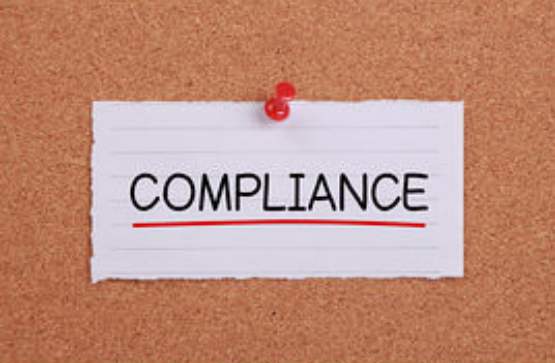
THEY HAVE TO, YOU DON'T
THE EVIDENCE IS IN THE $ALE$ TAX $ECRET
THE ONLY CARD YOU NEED
IS THE "NO CARD REQUIRED"
CARD! YOU HAVE THE
LAW!
R & T 6051 etc.
That's right you have
won!
No more pesky Sales Tax for you because as our Grand Prize winner
you're now EXEMPT!
 YOUR GOLD CARD TO FORTUNE
YOUR GOLD CARD TO FORTUNE
Start spending to save! Everybody knows that's how it's
done! So hurry now before time runs out!
Arent't cheap sales
"techniques" just the best?!
All kidding aside, THIS IS WHERE "We the people..." can begin
asserting their POWER and take back CONTROL OF THEIR OWN LIVES!:
 THAT CASHIER IS REQUIRED TO KNOW THE LAW!
THAT CASHIER IS REQUIRED TO KNOW THE LAW!
We
thus require
citizens to apprise themselves not only of statutory language but also
of legislative history, subsequent judicial construction, and
underlying legislative purposes (People v. Grubb (1965) 63
Cal.2d 614, 620 [47 Cal.Rptr. 772, 408 P.2d 100]). (See generally
Amsterdam, The Void-For-Vagueness Doctrine in the Supreme Court (1960)
109 U. Pa. L.Rev. 67.) These principles express the strong presumption
that legislative enactments "must be upheld unless their
unconstitutionality clearly, positively, and unmistakably appears.
[Citations.] A statute should be sufficiently certain so that a person
may know what is prohibited thereby and what may be done without
violating its provisions, but it cannot be held void for uncertainty if
any reasonable and practical construction can be given to its
language." (Lockheed Aircraft Corp. v. Superior Court (1946) 28 Cal.2d
481, 484 [171 P.2d 21, 166 A.L.R. 701], citations omitted.)
Walker v. Superior
Court (1988) 47 Cal.3d 112
[S.F. No. 24996. Supreme Court of California. November 10, 1988.]
That's the California Supreme
Court talkin and THAT'S THE LAW! You have a MANDATORY DUTY TO
KNOW THE LAW AND LEGISLATIVE HISTORY OF THE LAW! If you
don't like it then leave or lobby to have the LAW changed! So
until the LAW is changed suck it up and LEARN THE RULES, after all,
it's YOUR government and the people who are employed there are YOUR
employees. Run them or they're gonna run you!
That "law" is also applicable to
that cashier! She, and every other cashier in California has a
MANDATORY DUTY to know the law. And, one would think, the LAW as
it pertains to her damn job that the people on the right side of the
counter make possible by their continued patronage to the place of her
employ.
Again, that store is shitting on
their customers in three demonstrably provable ways: 1.
Sales tax; they're OLBIGATED to pay it, 2. The CRV
(California Return Value - Bottle Tax), it's the responsibility of the
DISTRIBUTOR of the beverages, NOT THE CUSTOMER, so the store is rippin
off the customers to benefit the DISTRIBUTOR, 3. The customer is
now responsible for determining how much space each bag they require
consists of. They have to determine the structural integrity of
the plastic and paper bags. They have to determine the size of
each item they intend to purchase so they can be reasonably accurate in
determining how many bags they'll need. They'll have to also
account for "impulse buying decisions" where the unexpected purchase
was required.
The patrons have a lot of power
at the register, they just don't know it.
If you have an interest in saving
money then this is for you, and it includes lots of evidence (receipts):
Take it from
American Extraordinare Wally George:
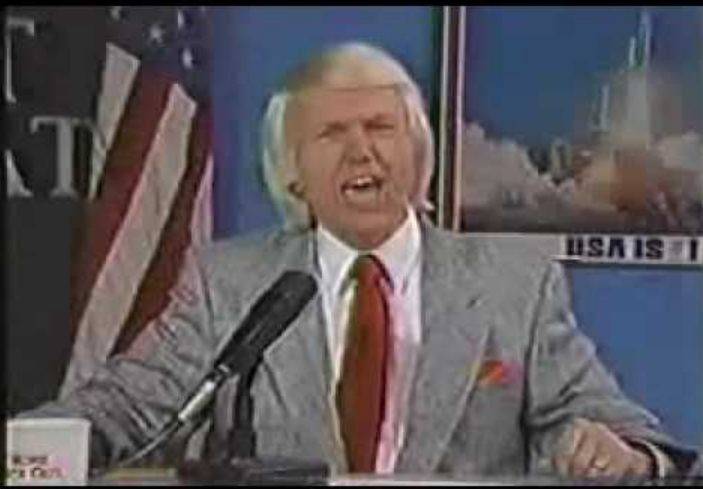 Paying sales tax is ludicrous. Tell em Wally sent you.
Paying sales tax is ludicrous. Tell em Wally sent you.
Now make a donation for the Sales Tax Secret to learn how to save some
money TODAY!
 Donation $100.
Donation $100.
YES! IT'S THE LAW IN FLORIDA TOO (and other states)!
The
.pdf will be provided, along with a couple of LAW DICTIONARIES, more
receipts, other court decisions and some other goodies on one of these
types of things:
You
can transfer the content to your hard drive and you'll have a little
brief case you can carry with you with whatever you want to put on it.
